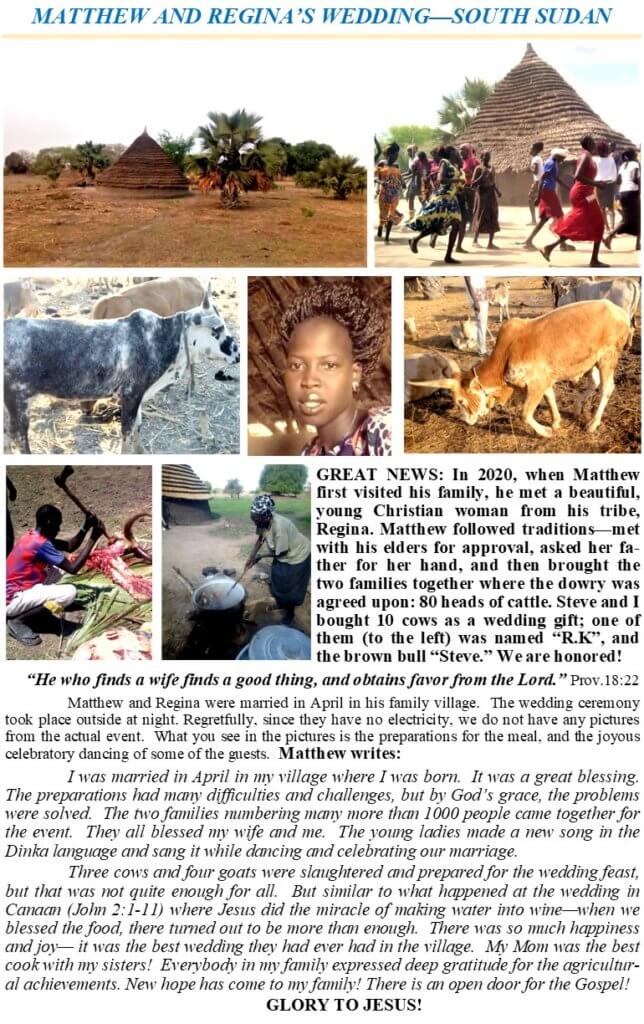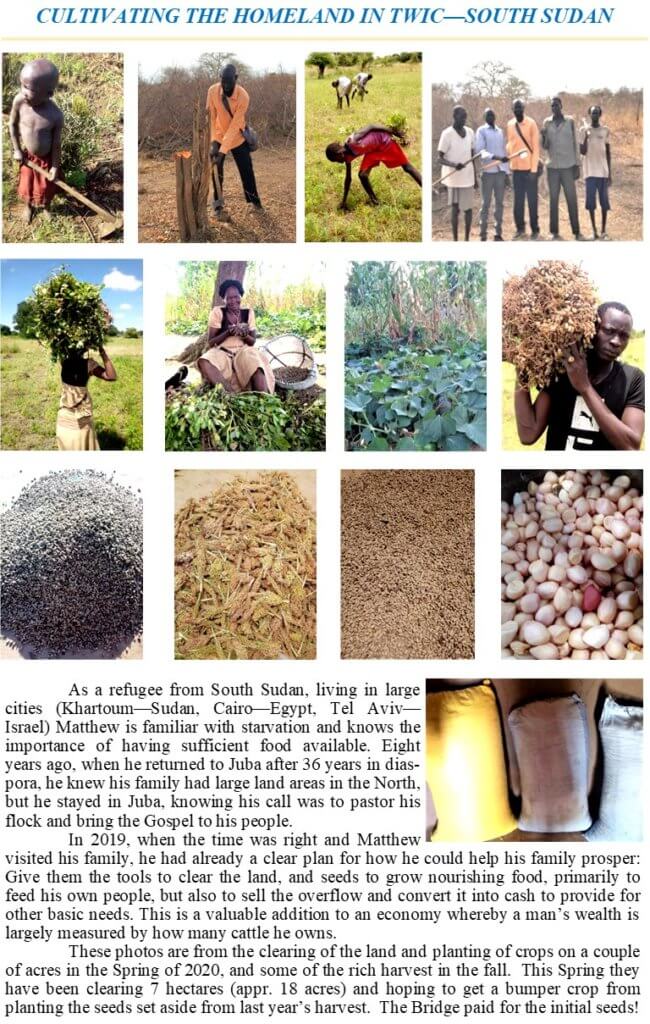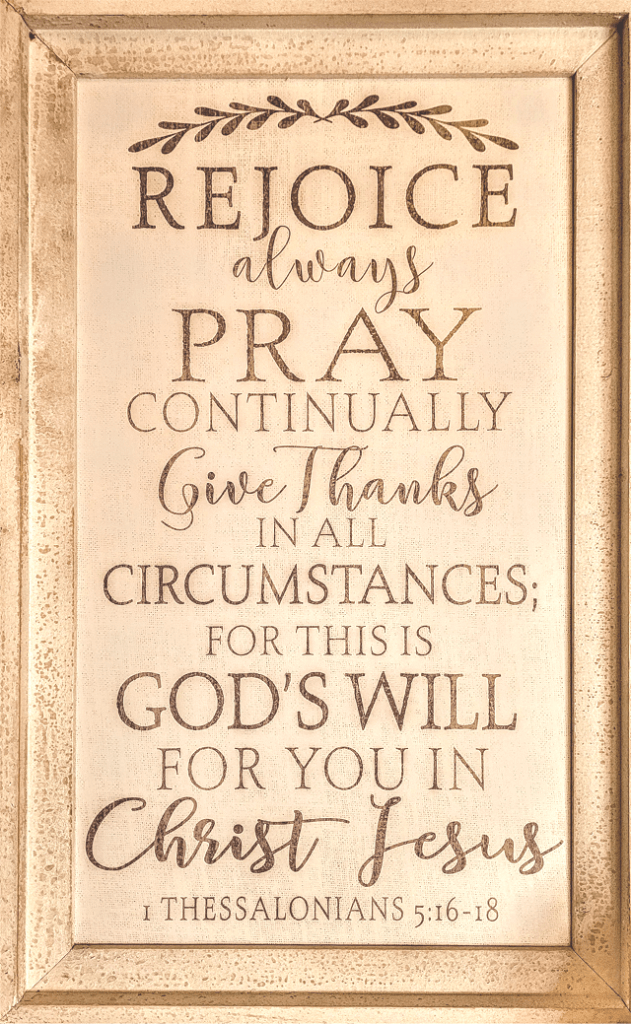
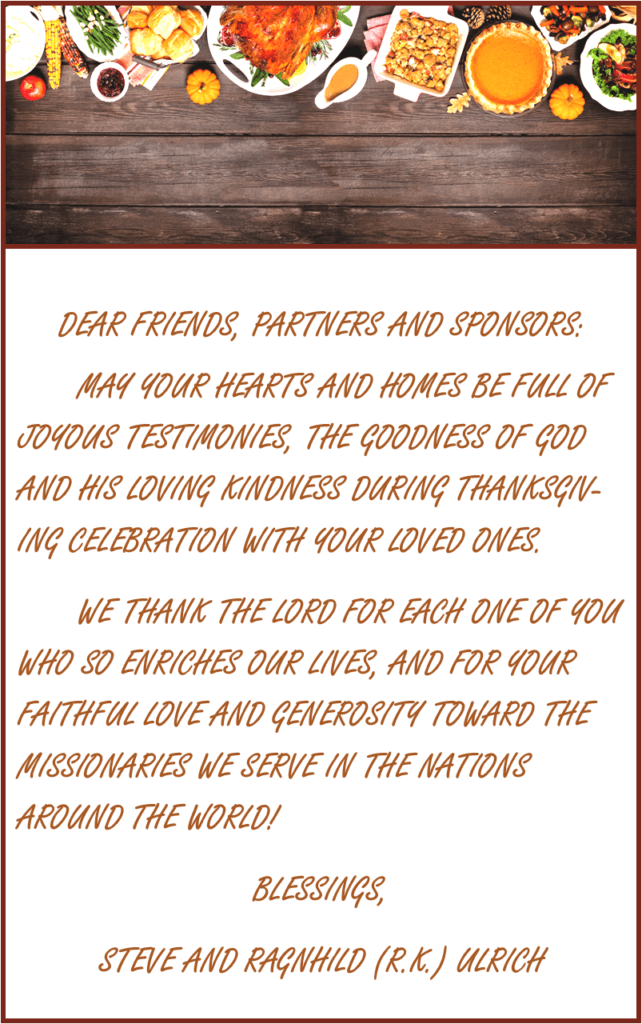
Haiti — Earthquake and Disaster Relief by Our Partners
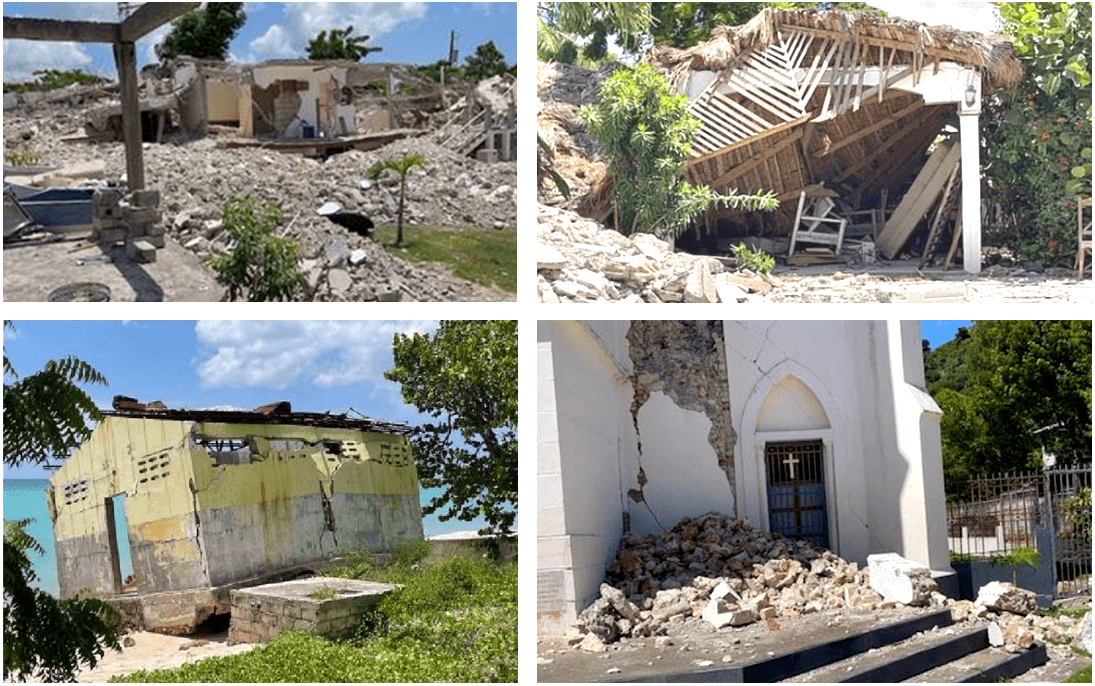
On August 14, a 7.2 magnitude earthquake rocked Haiti’s southern peninsula, releasing almost twice as much energy as the 7.0 magnitude quake in 2010.
The quake struck 78 miles west of Haiti’s capital, Port-au-Prince, and affected two cities, Les Cayes and Jeremie, resulting in major devastation with people caught under rubble and collapsed buildings. Phone lines were down near the epicenter of the quake. It took some time for the news to emerge from those cities. The only road linking Port-au-Prince to the affected area is dangerous and at times impassable due to gang violence, so the transport of relief aid is slow and laborsome.
This same region was battered by Hurricane Matthew in 2016, which killed nearly 900 people and reportedly destroyed 90% of some areas, including the main road connecting the peninsula to the capital. The region was still recovering from that disaster when the quake happened. It also coincided with immense national political turmoil following the July 7 assassination of its leader, President Jovenel Moïse.
Haiti remains one of the poorest in the world, with 60% of the population earning less than $2.00 a day. A power vacuum, severe poverty and rampant gang violence has left the country ill-prepared to handle a disaster of this scale.
UNICEF’s August 29 publication reported the following statistics: As of Saturday, 21 August the country counted 2,207 deaths and 12,268 wounded. Approximately 52,953 houses were completely destroyed and 77,006 severely damaged, while 650,000 people are in need of humanitarian assistance, including 260,000 children. Severe damage to infrastructures such as hospitals, schools, water systems and roads have left basic social services in a dire situation. Tropical storm Grace reached the country on Monday, 16 August, triggering mudslides, hampering relief efforts and weakening the already fragile telecommunication system.
Disaster Relief Provided by BCDC in Partnership with CINHP
by Sharon Cushing
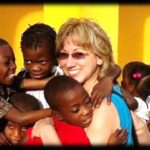
Those who survived the August 14th earthquake and subsequent Tropical Storm are still in grave danger. The earthquake demolished buildings, killing thousands. Landslides buried homes, businesses, farms, gardens, and livestock. Water is in short supply as many cisterns were destroyed by the earthquake and natural water sources have been contaminated. Roads and bridges were damaged or destroyed, making it difficult for aid to reach the affected towns.
Many are homeless or injured and hunger is rampant in the hardest-hit areas. Gangs continue impeding delivery of humanitarian assistance – attacking convoys and stealing food and supplies. In a place where food insecurity was already a problem this has made the predicament increasingly dire.
Homeless women and children are especially vulnerable to hunger, violence, and exploitation. COVID-19-related health risks present additional insecurity. Hospitals are overcrowded and the staff overwhelmed. Some areas are remote and nearly unreachable.
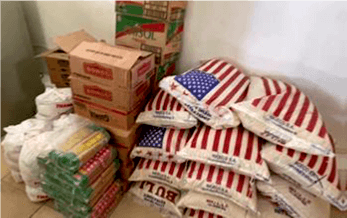 Though our CINHP school is not in the affected area (located in the village of Lesnipasse, 10 km southeast of Port-au-Prince), we received a great outpouring of concern from our donors who wanted to help. To date, $10,000 has been donated through our ministry and sent to our partners at Beraca Community Development Corporation (www.bcdc.org) whose people tirelessly work on the ground in the disaster area. This is a great testament to the goodness of God through his people.
Though our CINHP school is not in the affected area (located in the village of Lesnipasse, 10 km southeast of Port-au-Prince), we received a great outpouring of concern from our donors who wanted to help. To date, $10,000 has been donated through our ministry and sent to our partners at Beraca Community Development Corporation (www.bcdc.org) whose people tirelessly work on the ground in the disaster area. This is a great testament to the goodness of God through his people.
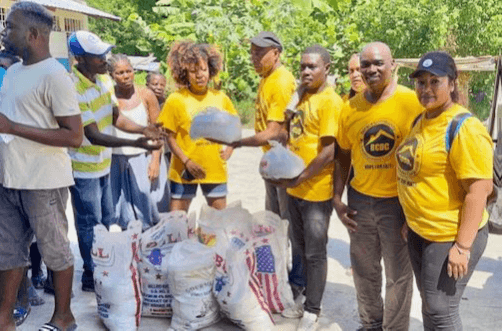 Thankfully, our partners at BCDC have offices near the hardest-hit areas: Port Salut (Les Cayes) and Jeremie. This gives them proximity to those most affected by these twin catastrophes. Beraca’s network of 1700 churches in that region are being used as distribution hubs to expedite assistance to the victims in the ravaged areas and facilitate the ongoing rescue and relief efforts. They administer emergency first aid and supply families with safe drinking water, food, hygiene kits, medicine, tents, blankets, and clothing, which relieves immediate needs. Our donated funds to the Disaster Relief are going to supporting their efforts.
Thankfully, our partners at BCDC have offices near the hardest-hit areas: Port Salut (Les Cayes) and Jeremie. This gives them proximity to those most affected by these twin catastrophes. Beraca’s network of 1700 churches in that region are being used as distribution hubs to expedite assistance to the victims in the ravaged areas and facilitate the ongoing rescue and relief efforts. They administer emergency first aid and supply families with safe drinking water, food, hygiene kits, medicine, tents, blankets, and clothing, which relieves immediate needs. Our donated funds to the Disaster Relief are going to supporting their efforts.
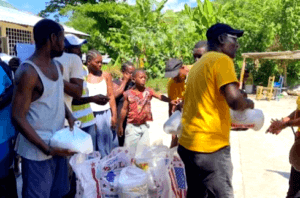 Following Phase 1—Rescue, BCDC will begin Phase 2—Rebuild: helping reconstruct homes, churches, schools, and clinics, restore businesses, replant gardens, and meet other needs. We will work with them as we can.
Following Phase 1—Rescue, BCDC will begin Phase 2—Rebuild: helping reconstruct homes, churches, schools, and clinics, restore businesses, replant gardens, and meet other needs. We will work with them as we can.
Teams have been on the ground helping to console those affected and to reassure them that hope is not lost and that they are not alone. They know that God and people like you feel their pain and care. 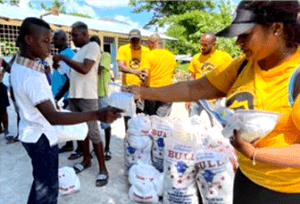 Perhaps this comfort is even more important than the material aid. Please pray for those who do not yet know Jesus – that they’ll be encouraged to seek and follow Him AND that God continues to lead and provide for these vulnerable families.
Perhaps this comfort is even more important than the material aid. Please pray for those who do not yet know Jesus – that they’ll be encouraged to seek and follow Him AND that God continues to lead and provide for these vulnerable families.
Please pray for the safety and efficacy of the teams on the ground and that the recipients of their service will know they are loved and cared for. Continue to pray and spread the word to others who might be interested in helping.
HISTORIC BACKGROUND ON THE SERVICES BERACA COMMUNITY DEVELOPMENT CORPORATON HAS RENDERED TO THE PEOPLE IN HAITI
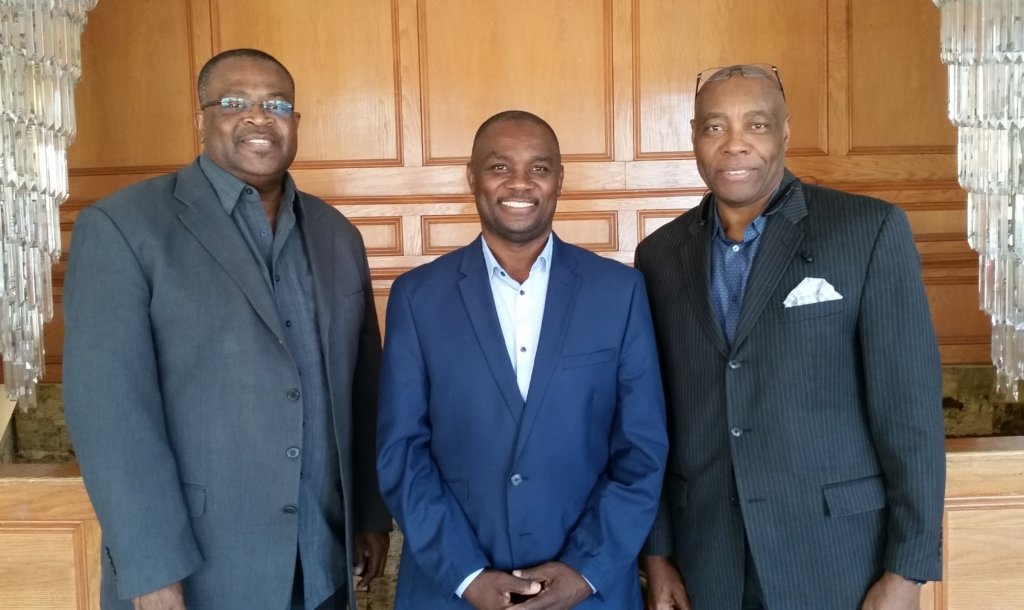
I (R.K.) met Pastor Jean-Pierre Mullery (Center) and two of his Co-Pastors during my visit to their church four years ago.
After the January 12, 2010 7.0 magnitude earthquake in Haiti, Pastor Mullery and his team extended BCDC from NY to Haiti, where they currently serve the cities of Leogane, Cabaret, Jeremie and Cape Haitian with a number of community programs and mercy ministries in addition to planting churches and rebuilding schools and businesses. This has caused scored of impoverished and destitute people in the region to be lifted out of poverty and become productive and fulfilled, as they learn to bloom where they are planted. Following are some of the programs:
- Training and mentoring Pastors and leaders. They are currently training 1700 leaders.
- Creating and sustaining approximately 400 jobs through their motorcycle taxis, micro-lending and mini bus services.
- Conducting mobile medical clinics, bringing healthcare to thousands of underserved Haitians through the local churches in their communities.
- Training and equipping teachers and principals, providing a good education to their students by the use of certified U.S. Haitian-American teachers.
- Planting churches that are the hubs for spiritual and socio-economic health and development in the Haitian communities.
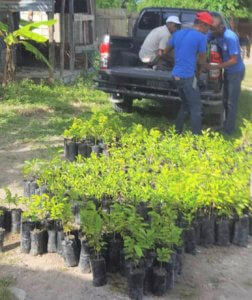
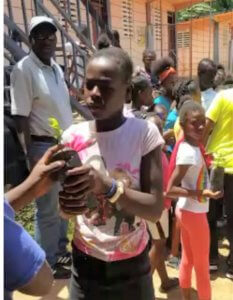 The event of Hurricane Matthew not only devastated the region, but also caused food shortages throughout the nation. BCDC began networking with some of the local churches to re-plant what the hurricane destroyed, which now includes hundreds of churches.
The event of Hurricane Matthew not only devastated the region, but also caused food shortages throughout the nation. BCDC began networking with some of the local churches to re-plant what the hurricane destroyed, which now includes hundreds of churches.
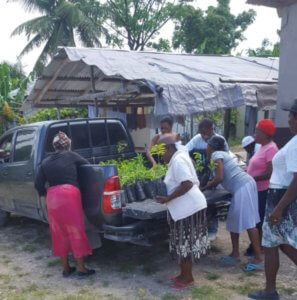 The Reforestation Project focuses on replanting trees in the denuded countryside to help avoid the continued massive erosion of cultivated land in the region. It is known as the breadbasket of the country, as a good portion of the crops that feed Haiti are grown there. For every tree gone, they plant three new seedlings. Teams from Beraca keep traveling to Haiti with needy material, tools, and supplies, and work in partnership with Haitian believers in rebuilding church buildings, community centers, and homes that have been destroyed by the hurricane.
The Reforestation Project focuses on replanting trees in the denuded countryside to help avoid the continued massive erosion of cultivated land in the region. It is known as the breadbasket of the country, as a good portion of the crops that feed Haiti are grown there. For every tree gone, they plant three new seedlings. Teams from Beraca keep traveling to Haiti with needy material, tools, and supplies, and work in partnership with Haitian believers in rebuilding church buildings, community centers, and homes that have been destroyed by the hurricane.
FROM R.K.’S CORNER
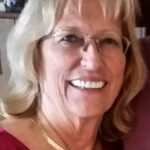 The Bridge partners with two excellent Christian organizations who have been on the ground in Haiti for years, doing outstanding work in serving the local population by helping them improve their and their family’s lives, both spiritually and physically. Children in Need Haitian Project (CINHP) established in NYC in 2005, has been doing an outstanding job in helping educate the children in the town of Lesnipasse, 10 km southeast of Port-au-Prince. Four years ago, Sharon Cushing, CINHP’s Administrator, introduced me to Mullery Jean-Pierre, Senior Pastor of Beraca Baptist Church in Brooklyn, NY, who with his dedicated team has served his Haitian people since 2010 in the region of the recent earthquake. I strongly encourage you to take time to read prior updates on the effective service these two groups of Americans are doing in helping the Haitian people help themselves and bloom where they are planted. You will find those stories on our website, just click on:
The Bridge partners with two excellent Christian organizations who have been on the ground in Haiti for years, doing outstanding work in serving the local population by helping them improve their and their family’s lives, both spiritually and physically. Children in Need Haitian Project (CINHP) established in NYC in 2005, has been doing an outstanding job in helping educate the children in the town of Lesnipasse, 10 km southeast of Port-au-Prince. Four years ago, Sharon Cushing, CINHP’s Administrator, introduced me to Mullery Jean-Pierre, Senior Pastor of Beraca Baptist Church in Brooklyn, NY, who with his dedicated team has served his Haitian people since 2010 in the region of the recent earthquake. I strongly encourage you to take time to read prior updates on the effective service these two groups of Americans are doing in helping the Haitian people help themselves and bloom where they are planted. You will find those stories on our website, just click on:
https://www.bridgeinternational.org/category/haiti/
If you want to give toward specific emergency items for the hardest hit victims, Sharon has complied a suggested list below
EMERGENCY RESPONSE NEEDS WITH APPX. COSTS:
Personal Needs:
- Meals for a family for a week – $10
- Hygiene kits – $25
- Family emergency shelters – $40
- Water filtration kits – $50
- Solar panel lights with USB charger – $70
Medical Needs:
- Cots for patients at hospitals – $60
- Generators for hospitals – $2,500
- Large canopy tent shelter for hospitals – $15,000
Please mark your donation 8162 RELIEF AID—HAITI. It will be sent in full to meet the intended emergency needs!
Bahram – an Afghan’s Journey to Faith in Jesus
My Family
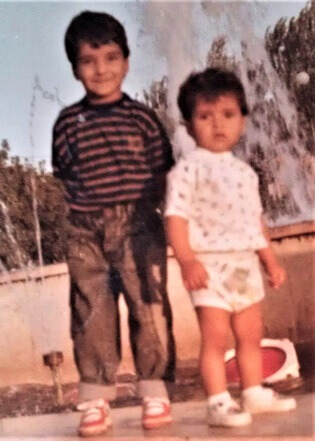
My younger brother and me in Herat
I was born in the city of Herat in Afghanistan, located close to the Iranian and Turkmenistan borders. My father is a doctor. I am the oldest of six, five brothers and one little sister.
One evening in 2010, my father was kidnapped by a terrorist group within the Taliban. They broke into our home and took him away by force. In the morning, they leveled accusations against him: He was working on a military base for the government and his salary paid by them, was not Halal (covered by Muslim law). They sent a message to our family, “Your father is with us, if you want him back alive, you must pay us $40,000.” At the time we did not have that kind of money, as my father had just spent his resources on building our family a new house. But, like a miracle, as neighbors and friends heard about our situation, during the next few days they came together and collected $35,000 among themselves which we offered as ransom.
The Taliban kept my father for three days while they tortured him, but eventually they accepted the ransom, although they misled my brother by guiding him to three false addresses before he finally found him. My father was badly hurt, but did survive. The two men in charge of the kidnapping were arrested by the government forces; one was sentences to 20 years, the other 15 years imprisonment. Shortly after that, our family began receiving threatening phone calls from the Taliban, even from Pakistan and Saudi Arabia.
They were ordering my father to go to the Judge and talk with him to insist that the two guys charged was a mistake, that they were innocent as a matter of wrong identity.
But the government knew they had the right men, as they were part of the Taliban leadership, so the kidnappers remained in prison. Our family kept being harassed, so we decided to move from our new home to another part of town, thinking we would be safer.
One morning as my father opened the front gate to go to work, he saw an object fastened to the gate. It turned out to be bomb. He contacted the authorities who came and deactivated it. Other times when I answered the phone the voice would say, “We will kill your whole family!” We contacted the Judge, the government authorities, the offices of the foreign NGOs and the United Nations office and asked for protection, but they all stated it would not be possible. Therefore we left our city and moved to another city, Mazar-e-Sharif, located near the borders of Uzbekistan and Tajikistan, hoping our lives would be better.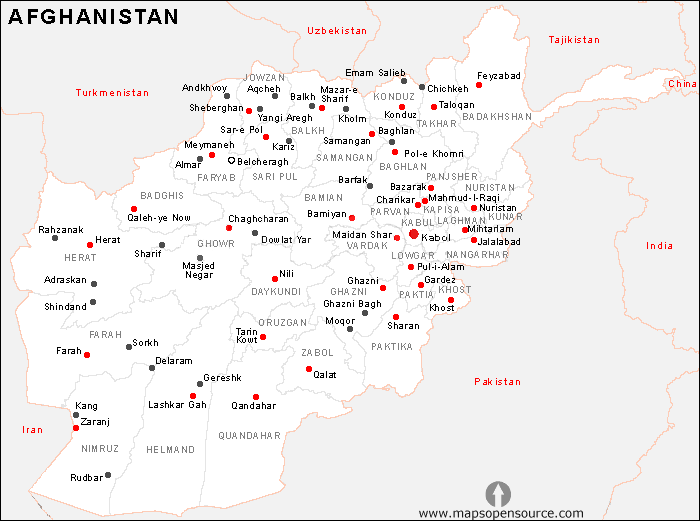
Studies and Work on Military Base
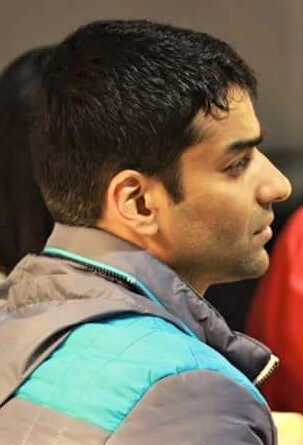 We had a financial problem since we needed to repay the funds our friends and neighbors had given us for the ransom. So, as I began my university studies, my father also found me a job at a very large ISO international military base containing foreign troops from many different countries. I was assigned to the Project German Training Team. The first three months I cleaned the barracks. Later, I was entrusted a better job as security guard inside the camp. I shared room with an Afghani German translator, and we became very good friends.
We had a financial problem since we needed to repay the funds our friends and neighbors had given us for the ransom. So, as I began my university studies, my father also found me a job at a very large ISO international military base containing foreign troops from many different countries. I was assigned to the Project German Training Team. The first three months I cleaned the barracks. Later, I was entrusted a better job as security guard inside the camp. I shared room with an Afghani German translator, and we became very good friends.
One day, one of my friend’s German trainers told him that his father would come on a visit for a week from Germany—could he spend some time with him and help with interpretation? He agreed and asked me to help when he took the guest around Kabul to show him around. On the last day, as we took the guest to the airport, we expected to be paid for our time, but to our disappointment, he did not give us any monetary compensation, he just handed my friend a book as a gift.
The Book
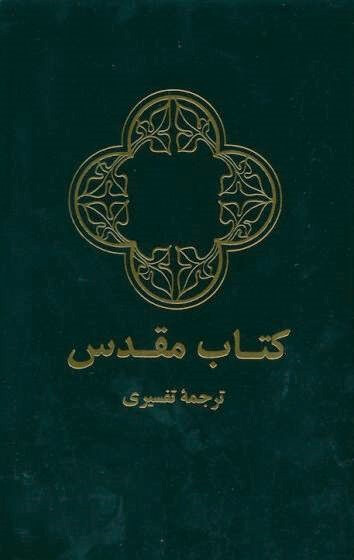
The Bible in the Farsi language
My friend was very angry, feeling he had waisted a whole week for nothing, as he was used to be paid well a professional interpreter. I suggested, perhaps the German had placed money inside the book, so when we arrived back to our room, we carefully examined it, but found nothing, so my friend threw the book on the table and walked away. I had a thought, “What if the book is of more value than money?” We removed the top book jacket, and to our horror found it was Injeel (the Bible). “Oh, no”, my friend exclaimed, “this is not a gift, this is not a book – it is a bomb! If anyone find we have a Bible in our room, we will be killed before we can explain where the book came from!” In Afghanistan it is a death sentence to have a Bible, as all Muslims are taught the Bible is corrupt and will pervert the reader. We were very afraid that night, so we hid the book. We were curious, so after a week, I suggested we read the book to find out how the Christians pray. My friend opened the book and began reading from the beginning. The Old Testament with the story about the creation was very interesting, as much is the same as in the Qur’an, although the names and places are different. In the Qur’an a verse states: ”I believe in God, I believe in all the books of God which tells us about Injeel I believe in the Prophet I believe in the day of Resurrection”, so I told my friend, “Since it mentions Injeel, it’s okay to read this Bible, even though it is corrupted.”
Comparing the Bible with the Qur’an
After 4-5 months of reading, we came to the New Testament. My friend read the Gospel of John 1:1, “In the beginning was the Word, the Word was with God, the Word was God!” That reminded me what I had read as a child in the Qur’an’s Book of Miriam (Mary) that Gabriel, God’s angel, came to Miriam with the Word of God, that God’s Spirit would come and give her a son, who would be called Isa (Jesus).
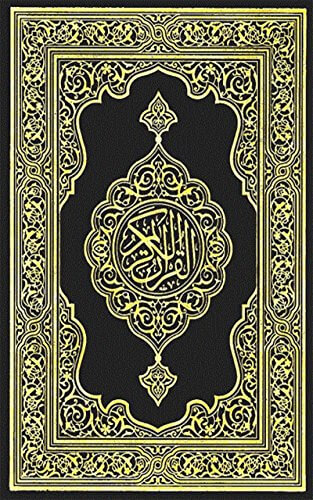
The Qur’an in the Arabic language
This became very interesting as we saw the connection between the two books. We decided to begin comparing the Bible with the Qur’an. Since we did not know Arabic very well, I was able to get the Qur’an in my own language, Farsi. At night after everybody was asleep, my friend would read the Bible, I would read the Qur’an, and we compared the two.
This continued till I found written in Surah al-Ma’idah Third Book of Qur’an all the miracles Jesus did. It also states that He was not crucified but was taken into heaven and will come back on Judgement Day and judge the infidels. It hit me that it’s neither Allah, nor Muhammed who will come and judge on Judgement Day—but Jesus! Another story in the Qur’an impacting us, was when Muhammed was ill in bed, and his disciples came to him and asked him, “O, Prophet, what will happen to you when you die?” Muhammed answered, ”I don’t know where I am going – heaven or hell.”
So—all this time we had been following the Prophet who is promising us Heaven, but does not have a clue where he is going himself? On the other hand, in the Bible’s New Testament, we read that Jesus not only promises us eternal life, but He was resurrected and ascended into Heaven where He now sits and prays for us. Muhammad also writes that, if you have doubt about the revelations, go and ask the people of the Book, which means Christians and Jews, because they have the Injeel, which means the Light.
At this point my friend said, “Much which is written in the Qur’an is in the Bible, but in the Bible Jesus says we shall love another, even our enemies.” As an Afghan-German interpreter, my friend would go with many troops on different missions in Afghanistan. One day, the Taliban captured one of his close friends and cut his head off in front of his eyes, and while they did that, they were reading words from the Qur’an. He thought, “I am tired of killings and hatred. I think I found a new way. I don’t know what or how I should do this.” So, he simply prayed, “I believe you Jesus, I believe the Bible, please forgive my sins.”
Finding a New Way
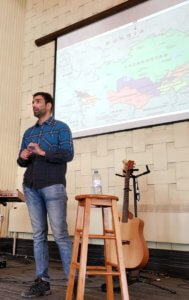
Bahram sharing his testimony
After that, my friend told me he had now found a new way. I watched him for a week to see if he would be punished or die—instead I saw him so happy and radiant, “I feel free and I have now contact with God, I can talk directly with Him without having to read in Arabic.” After a while, I wanted the same experience. I asked Jesus to come into my life. For one year, we lived in Afghanistan as believers. No one knew, which was okay.
On October 1, 2013, we were praying late and my friend forgot to hide the Bible. One of our coworkers found it. He reported us to his father, who was one of the leaders at the local Mosque. They visited my friend’s mom, threatened her, and had her call us and command us to go to the Mosque to repent.
The Escape
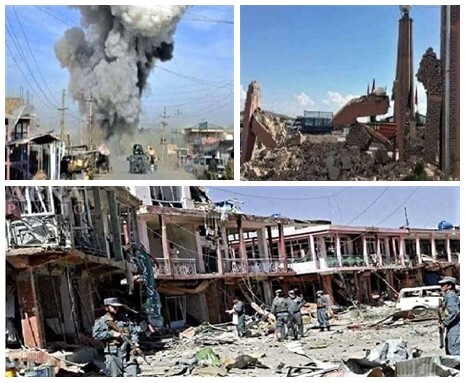 We knew they would kill us, not only because we had changed religion, but also because we had been working with foreigners at a military camp. We decided to escape. We packed up some clothes and money and left during the night for the neighboring country, Tajikistan. At the border town we hid in a hotel for three days, waiting for a friend to get us our passports and a visa to get into Russia. But it was too late. The Taliban was looking for us and had blocked our passports. They published our pictures on the local TV news, everybody was looking for us.
We knew they would kill us, not only because we had changed religion, but also because we had been working with foreigners at a military camp. We decided to escape. We packed up some clothes and money and left during the night for the neighboring country, Tajikistan. At the border town we hid in a hotel for three days, waiting for a friend to get us our passports and a visa to get into Russia. But it was too late. The Taliban was looking for us and had blocked our passports. They published our pictures on the local TV news, everybody was looking for us.
Finally, we came across a taxi driver who was willing to drive us to the Russian border for $1,500. We gave him almost all the money we had, and he drove us across the Afghan border into Tajikistan, and continued driving for one day till we crossed the Kyrgyzstan border. There he stopped and demanded more money—which we did not have—to drive us all the way to Russia. He dumped us in the middle of nowhere with no money, no food, no visas, no passports.
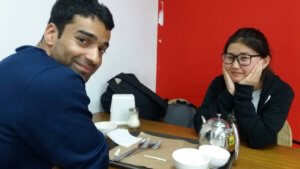
Bahram with fellow student in Bishkek, Kyrgyzstan
Another taxi drove by. For the remainder of our money, $55.00 he picked us up and drove us a few miles and dropped us off at the UNHCR (refugee branch of the U.N.) There, we were told they could not help us because Kyrgyzstan is a Muslim country. We would be sent back to our country. They put us up for two weeks in a shelter, but without food. Eventually, they contacted the Kyrgyz immigration authorities and they brought us to the capital of Bishkek and asked us to go to the Afghan Embassy and get identification cards, which we did not, since they would have reported us back to the Taliban, and we would have been deportet back to Afghanistan.
The Miracle of Healing
The first night in Bishkek, we sat on a bench, and suddenly I had excruciating, unbearable pain in one of my kidneys. My friend thought I was dying and tried to get me into a hospital, but since I had no money, they refused to treat me. I don’t know what happened, but I began to pray for myself, then my friend prayed for me. I fell asleep, and when I awoke, there was no more pain as I passed a kidney stone. That was the first miracle I experienced!
In Bishkek, we were passed around to different agencies, from the UNHCR, the local immigration office, the Human Rights office who gave us a place to stay, but again without food. We did not know anyone nor speak the language.
The Waiting Time – Learning, Growing, Maturing in Faith
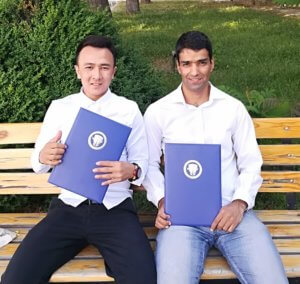
Graduation with Diploma from Keiin College in Bishkek.
We thought, perhaps we should look for a church, and we found an Russians Orthodox church. When we went inside, we met another Afghan man and woman who also were refugees. They invited us to their home and fed us, and we stayed there for 10 days. We learned that a kind woman in America, R.K. from The Bridge International was helping them, so we were introduced to her on Skype. R.K. also helped both my friend and me, and began regularly sending funds through the Afghan we had met, to help support us. We learned later, that this Afghan posing as a Christian brother was dishonest. He withheld the money R.K. sent to us and took it for himself, then lied to her that we had received it. She stayed in touch with us and tried to help us in our situation.
R.K. contacted German officials, informing them that one of their translators was stranded in Kyrgyzstan. They responded, so in 2014, my friend got a visa to move to Germany, where he is doing well. I was refused the German SIV, so I remained in Kyrgyzstan. In the Spring of 2014, R.K. came to Kyrgyzstan, where I met her in person.
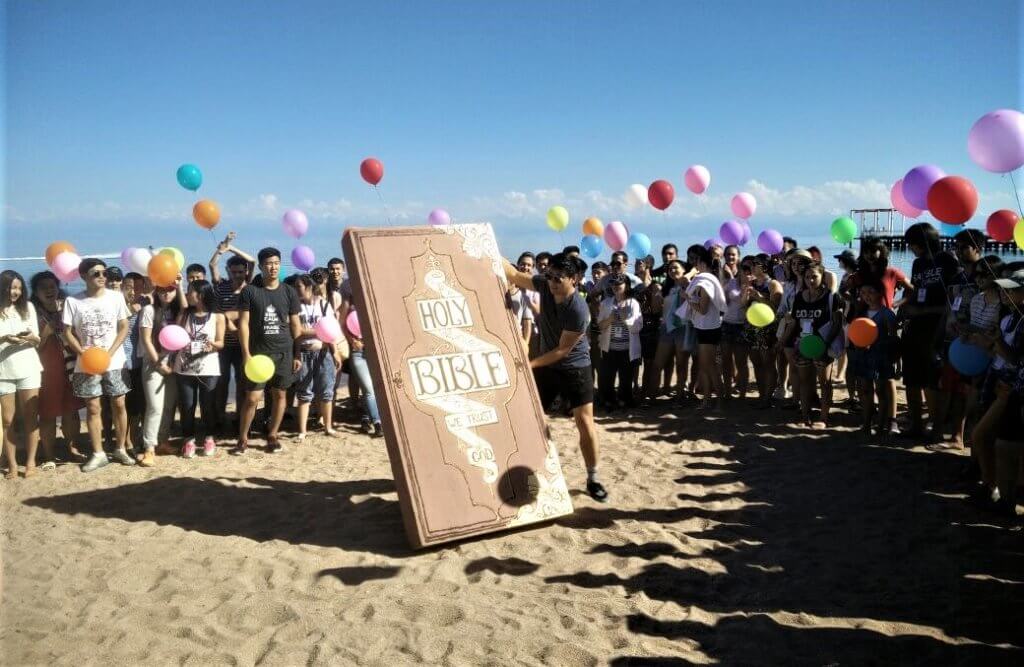
Christian Student Conference in Bishkek
I lived in Kyrgyzstan another five years, where God opened many doors for fellowship—via the International Church, foreign mission organizations, individual missionaries and local believer who demonstrated the real love of the Body of Christ. Several assisted with the college tuition, and R.K. also helped me during this time. I graduated with a degree in Business Management. 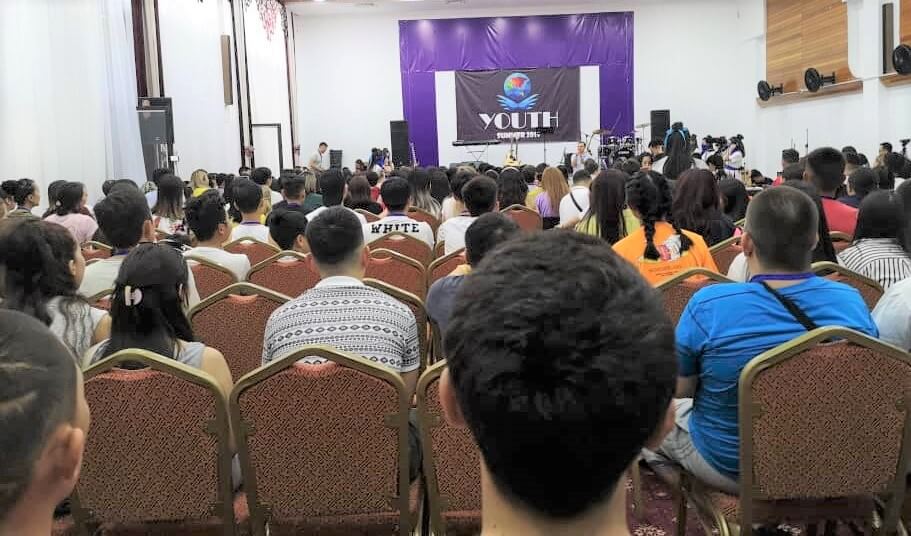 Simultaneously, I studied the Word of God, and began sharing my faith among Muslims from many countries using the Qur’an as a door opener to point to ISA—Jesus, God’s Son, the Savior of the World! I became the leader of the International Christian Student Fellowship. I know God kept me in Kyrgyzstan for those years to teach, train, and mature me in the faith to be a witness for Him to my people, and Muslims in other places!
Simultaneously, I studied the Word of God, and began sharing my faith among Muslims from many countries using the Qur’an as a door opener to point to ISA—Jesus, God’s Son, the Savior of the World! I became the leader of the International Christian Student Fellowship. I know God kept me in Kyrgyzstan for those years to teach, train, and mature me in the faith to be a witness for Him to my people, and Muslims in other places!
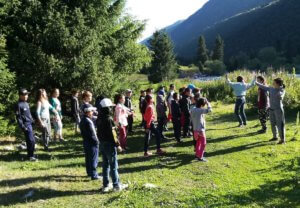
Leading Youth Camp in Kyrgyzstan
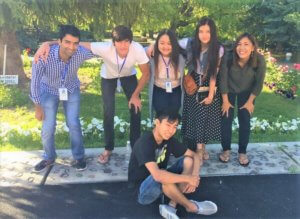
Christian Fellowship in Bishkek
Immigration to Canada
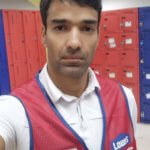
My first Job in Canada
An American Missionary, James Hutchington and his family, helped me a lot. He presented my case to the pastor of a Canadian church, who was visiting Bishkek. After being interviewed, they decided to sponsor my immigration to Canada. Through a long, difficult process, in 2019 my visa was approved. I moved to Manitoba where I now live, work, fellowship, and learning the Western way of life!
FROM R.K.’s CORNER
At this moment in time, you need no introduction to the nation of Afghanistan. Due to the retreat of American troops and the fall of the country, including the capital of Kabul, to the Taliban, an internationally recognized terrorist group, the news media on a daily basis are filled 24-7 with reports from the tragic events unfolding in Afghanistan.
In the mid 1990’s, I had the privilege of personally becoming acquainted with a community of 2000 Afghan refugees living in Kazakhstan. The Bridge helped them establish a grade school for their children, where they were taught in their own language, through their own culture while living in diaspora. I came to love this beautiful, poetic mountain people, tragically trapped today by the evil ideology of Taliban’s extreme Islamic terrorism.
In 2013, I was introduced to four Afghan refugees who had fled Afghanistan to Bishkek, Kyrgyzstan. The Bridge helped them while waiting to settle elsewhere.
Bahram Aira is one of them, now living in Canada. He has a powerful testimony which might help us understand the reality of what is happening in his home country; also how the power of God’s Word enlightens and transforms a soul and heart, even in a follower of Islam!
PLEASE PRAY FOR PEACE, SAFETY AND PROVISION FOR THE PEOPLE IN AFGHANISTAN AND THAT MANY MAY EXPERIENCE TRUE PEACE BY COMING TO FAITH IN HIM – WHO IS THE PRINCE OF PEACE!
Cuba — Pandemic, Protests versus Prayer Revival
“We Were So Hungry, We Ate Our Fear”
The Uncertain Consequences of Cuba’s Protests
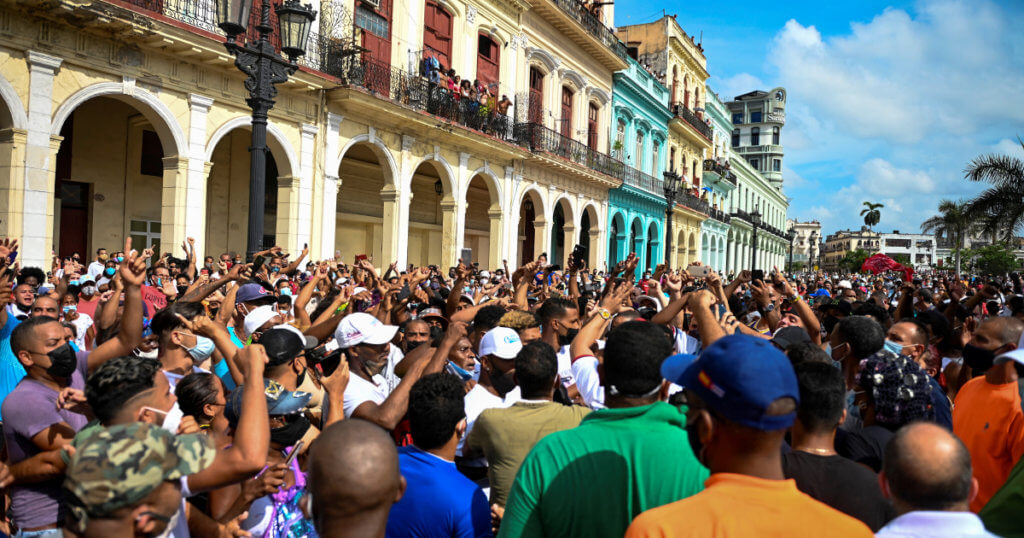
People take part in a demonstration against the government of Cuban President Miguel Diaz-Canel in Havana, on July 11, 2021. – Thousands of Cubans took part in rare protests Sunday against the communist government, marching through a town chanting “Down with the dictatorship” and “We want liberty.” (Photo by YAMIL LAGE / AFP)
On Sunday July 11, in the town of San Antonio De Las Banos on the outskirts of Havana, historic protests erupted against the Cuban government. In the following days the protests spread to 40 cities and 22 smaller towns throughout the country, with protestors chanting ‘freedom’ and ‘down with the dictatorship’. The protests were fueled by anger over medicine, food and gas shortages, the Cuban government’s handling of the COVID-19 crisis, and a broader frustration with the status quo of repression and lack of freedom of expression.
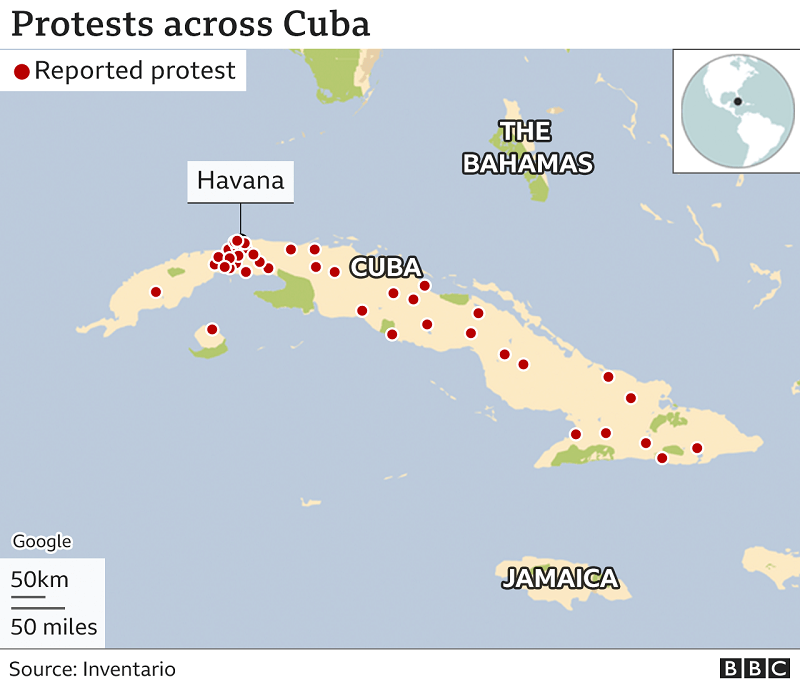 The grassroots organizers used social media to spontaneously mobilize the public countrywide. Videos quickly spread of protestors flipping over police cars, looting stores and throwing rocks, all capturing international attention. An anonymous protestor in San Antonio stated, ’We are not afraid. We want change, we do not want dictatorship anymore’. The Cuban government responded in kind: ’The order to fight has been given–into the street revolutionaries!’ declared President Miguel Diez-Canal as he dispatched his military machine.
The grassroots organizers used social media to spontaneously mobilize the public countrywide. Videos quickly spread of protestors flipping over police cars, looting stores and throwing rocks, all capturing international attention. An anonymous protestor in San Antonio stated, ’We are not afraid. We want change, we do not want dictatorship anymore’. The Cuban government responded in kind: ’The order to fight has been given–into the street revolutionaries!’ declared President Miguel Diez-Canal as he dispatched his military machine.
Numerous factors are responsible for the timing and size of the protests. In 2020, the Covid-19 pandemic caused a sharp economic contraction as tourism and sugar production—the two main engines of the economy—collapsed, resulting in lack of foreign currency to pay debt and import basic goods and services. This has had a profound impact on the economic and social life of the people on the island.
As protestors bravely were standing in the streets withstanding rubber bullets, tear gas, beatings, and the threats of arrest, there were shouts calling for “Freedom!” and “Liberty and Life!” from among the crowds. Whether Cuba will endure a similar fate as Venezuela and Nicaragua with a shaken, but enduring communist regime, or whether this protest is a trigger of a broader movement, is uncertain. What is certain is that, not since Castro’s revolution 62 years ago, has the Cuban government faced such a grave threat to its existence.♦
Excerpts from @The Oxford Student
Pandemic versus Prayer Revival. Report by a Friend from Cuba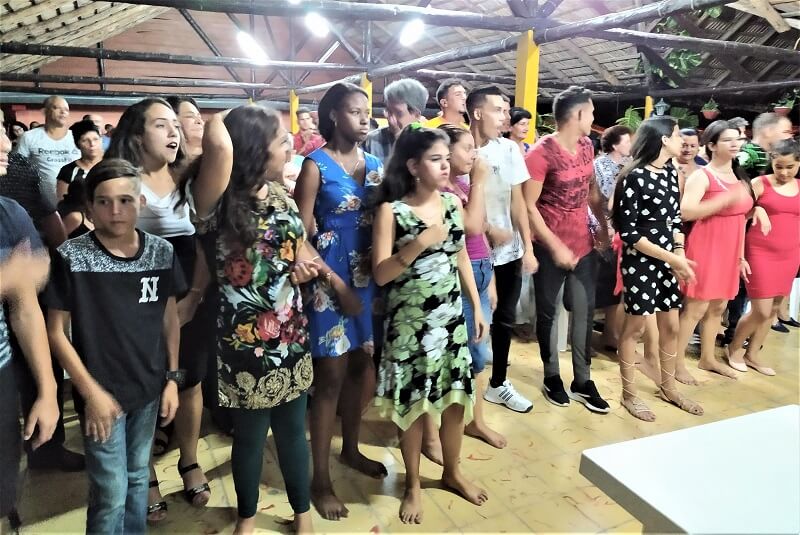
After more than sixty years of devastating Marxist Socialist/Communist dictatorship, the island of Cuba is experiencing one of the most horrible moments in modern history.
Day by day, in the midst of the massive human suffering, it is the power of the Church—κοινωνία, the Fellowship of Believers which is sustaining the Cuban people. Like the salt of the earth and light of the world, as described by Jesus in Matthew 5:13-16, it is bringing hope to our island, which was described by its great admirer, Christopher Columbus as, “more beautiful than human eyes have ever seen.”
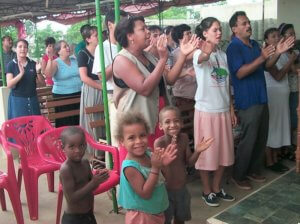 During the last eight months all church buildings have been closed. The pandemic has put the authorities on high alert as lack of proper food and vitamins are causing thousands and thousands to be infected with Covid-19 and hundreds are dying daily. The Church has risen to the occasion, being the only voice and messenger of hope of life for the nation of Cuba. With the disadvantage of having all church gatherings shut down, the Pastors and church leadership in Cuba have turned that into an advantage—using their creativity and innovation. They have invaded social platforms like Telegram, WhatsApp, etc. with a clear message: calling believers to prayer and fasting.
During the last eight months all church buildings have been closed. The pandemic has put the authorities on high alert as lack of proper food and vitamins are causing thousands and thousands to be infected with Covid-19 and hundreds are dying daily. The Church has risen to the occasion, being the only voice and messenger of hope of life for the nation of Cuba. With the disadvantage of having all church gatherings shut down, the Pastors and church leadership in Cuba have turned that into an advantage—using their creativity and innovation. They have invaded social platforms like Telegram, WhatsApp, etc. with a clear message: calling believers to prayer and fasting.
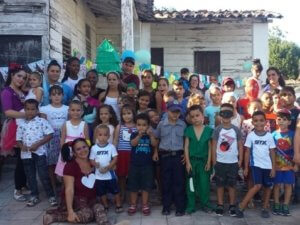 I know Pastors who have created groups on Telegram where they preach to 50 people or more at a time and record these messages. Then, everybody in the group distributes them to others who have prayer requests and are seeking to know the Living Jesus Christ, the Hope of Glory! One Pastor started preaching his sermons to a group of 10 on social media, which has now increased to 150 followers. Each of them downloads and resends these messages to hundreds more who are interested in the Living Word of God.
I know Pastors who have created groups on Telegram where they preach to 50 people or more at a time and record these messages. Then, everybody in the group distributes them to others who have prayer requests and are seeking to know the Living Jesus Christ, the Hope of Glory! One Pastor started preaching his sermons to a group of 10 on social media, which has now increased to 150 followers. Each of them downloads and resends these messages to hundreds more who are interested in the Living Word of God.
From R.K’s Corner
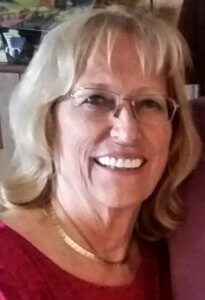 It is almost unimaginable that only 90 miles from the shores of Miami, one of the wealthiest coastlines in the United States, perhaps even the world, there is an island with a population of a little more than 11 million people who, except for a very wealthy governing elite, live in abject poverty. For 62 years, Cuba has been controlled by a ruthless Marxist dictatorship which has oppressed, repressed, and suppressed their people’s lives and liberty. On July 11, the people of Cuba shook off their fear of reprisals, took to the streets where they openly protested against tyranny and demanded freedom and liberty. The world is taking notice!
It is almost unimaginable that only 90 miles from the shores of Miami, one of the wealthiest coastlines in the United States, perhaps even the world, there is an island with a population of a little more than 11 million people who, except for a very wealthy governing elite, live in abject poverty. For 62 years, Cuba has been controlled by a ruthless Marxist dictatorship which has oppressed, repressed, and suppressed their people’s lives and liberty. On July 11, the people of Cuba shook off their fear of reprisals, took to the streets where they openly protested against tyranny and demanded freedom and liberty. The world is taking notice!
A more quiet, less visible, yet profound and more lasting transformation has also been taking place in Cuba. During the Covid-19 restrictions with church buildings and public gatherings on lockdown, the Christians in Cuba, as in many other oppressive nations, have risen to the occasion. They have formed nationwide networks between churches and fellowships online, as well as physically in small groups. Individual believers fearlessly and courageously come together to pray and intercede for each other and their nation. There is a prayer revival emerging in Cuba! They work together in finding and sharing resources with each other and the most needy in their communities with love, prayer for the hungry, the lost, the hopeless and lonely, the sick and dying as they present the Gospel by sharing testimonies of faith, and teaching them the Word of God
In this issue, I present a brief background on the unprecedented July protests. The centerfold contains a report by a dear Cuban friend who is well connected with the Body of Christ in his country. Please pray for Cuba’s liberation and freedom, both spiritually and physically!
Brazil: PAZ International in the Amazon Basin – The Amazing Story of One Family’s Call to Missions
BACKGROUND HISTORY
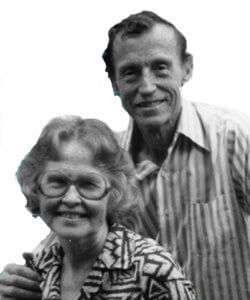 Great works often have humble beginnings. The foundation for PAZ International was laid in the 1950’s with Melvin Huber, a 36 year old farmer in the heartland of America. He and his wife, Katherine, had worked hard to make their farmland profitable, and were beginning to enjoy the fruit of their labor. With a loving wife, three children and one on the way, a supportive extended family and a good church, Melvin’s life was good. Then, one day, while working in the field, the Lord spoke to him, “You have received everything you wanted. But—what about those who have never heard about My love, and are dying and going to Hell?”
Great works often have humble beginnings. The foundation for PAZ International was laid in the 1950’s with Melvin Huber, a 36 year old farmer in the heartland of America. He and his wife, Katherine, had worked hard to make their farmland profitable, and were beginning to enjoy the fruit of their labor. With a loving wife, three children and one on the way, a supportive extended family and a good church, Melvin’s life was good. Then, one day, while working in the field, the Lord spoke to him, “You have received everything you wanted. But—what about those who have never heard about My love, and are dying and going to Hell?”
A vision emerged in Melvin’s heart—what if he would move to a poorer country, do farming for a living and mission work on the side? He learned that there were vast areas of uncultivated farming land available reasonably for sale in Brazil. Melvin and Katherine decided to follow God’s call. In 1955 they uprooted their family, packed their belongings, and were on their way to Brazil. They drove to Miami and unexpectedly, Katherine went into labor. Becky was born in the morning of their scheduled flight to Brazil. “The doctor who delivered me, didn’t even charge my parents,” Becky laughs as she relates the story. “They missed the flight and stayed in Florida for a while, then later boarded another plane to Brazil and continued the 30 hour travel with their now four children .” The Huber family’s last child was born in Brazil.
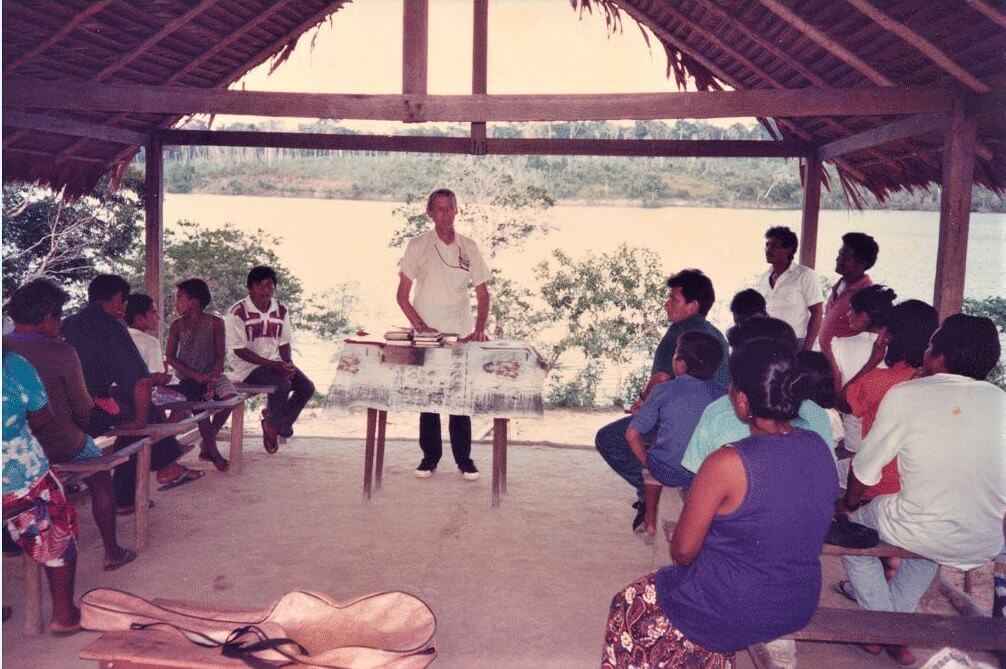 Melvin bought land, but never farmed it, as God blessed their past endeavors to become self supported, full time missionaries. Melvin combined the preaching of the Gospel with practical solutions to improving people’s life conditions.
Melvin bought land, but never farmed it, as God blessed their past endeavors to become self supported, full time missionaries. Melvin combined the preaching of the Gospel with practical solutions to improving people’s life conditions.
The family lived in different cities in South-Eastern and Central Brazil for 25 years while planting 20 churches, discipling church leaders, and raising five children who all followed in their parents’ footsteps. After moving to the States to obtain college education, and in some cases living, marrying and working there for a few years, all five children, two girls and three boys eventually returned home to Brazil as full time missionaries.
PAZ – THE BEGINNING
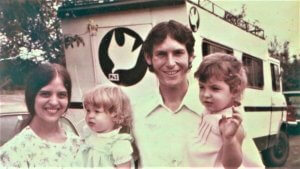 PROJECT AMAZON (PAZ) was established by Melvin and Katherine’s oldest son, Luke Huber. While in college in the States, he had met Christine, who also grew up with missionary parents. In 1973, after graduation, they married and returned to Luke’s family in Central Brazil, both with a zeal for Jesus and the Great Commission. They were assisting Melvin in his church planting, but both Luke and Christine had an increasing desire to bring the Gospel to the unreached peoples in the Amazon Basin.
PROJECT AMAZON (PAZ) was established by Melvin and Katherine’s oldest son, Luke Huber. While in college in the States, he had met Christine, who also grew up with missionary parents. In 1973, after graduation, they married and returned to Luke’s family in Central Brazil, both with a zeal for Jesus and the Great Commission. They were assisting Melvin in his church planting, but both Luke and Christine had an increasing desire to bring the Gospel to the unreached peoples in the Amazon Basin.
In December 1976, Luke (26) and Christine (25) with their two small children Sarah and Esther, climbed into their new PAZ truck, and traveled five adventurous days approximately 1500 miles on the newly opened Trans-Amazon Highway from Luke’s family home city of Goiânia to Santarém, a strategically located river port in central Amazon. Along the way they miraculously survived a serious life-threatening accident, “thanks to God’s presence and protection over us,” Christine writes.
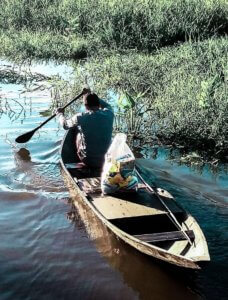 “My husband learned that the immense Amazon Basin (see map) was one of the larger unreached areas of the world, with tens of thousands of isolated villages, and millions of very poor people who had no one to tell them the good news of salvation through Jesus Christ. Most of the villages had no schools or medical help. Baby mortality was high, due to impure water and unhealthy diets. There were no roads to reach these villages, and at that time, there were no television, nor internet. The very few who owned small boats often did not have fuel. It could take any number of days to travel by boat across the wide ocean-like Amazon River or one of its huge tributaries to reach the nearest town, often through sudden, dangerous storms and rough waters.”
“My husband learned that the immense Amazon Basin (see map) was one of the larger unreached areas of the world, with tens of thousands of isolated villages, and millions of very poor people who had no one to tell them the good news of salvation through Jesus Christ. Most of the villages had no schools or medical help. Baby mortality was high, due to impure water and unhealthy diets. There were no roads to reach these villages, and at that time, there were no television, nor internet. The very few who owned small boats often did not have fuel. It could take any number of days to travel by boat across the wide ocean-like Amazon River or one of its huge tributaries to reach the nearest town, often through sudden, dangerous storms and rough waters.”
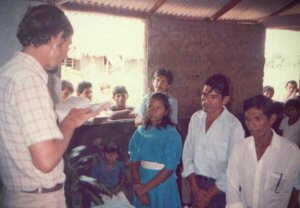 They found that Santarém and the surrounding river villages were ripe unto harvest. Luke found village after village along the river with no evangelical church. It was in those early days that God gave Luke and Christine the vision that was to become the very heart of PAZ: to plant a church in every village and town in the Amazon Basin. @PAZ
They found that Santarém and the surrounding river villages were ripe unto harvest. Luke found village after village along the river with no evangelical church. It was in those early days that God gave Luke and Christine the vision that was to become the very heart of PAZ: to plant a church in every village and town in the Amazon Basin. @PAZ
GROWING PAINS
To accomplish the mission of PAZ, Luke knew that he would need more workers and lots of boats, but he would always say, “Attempt big things for a big God!” He was never deterred!
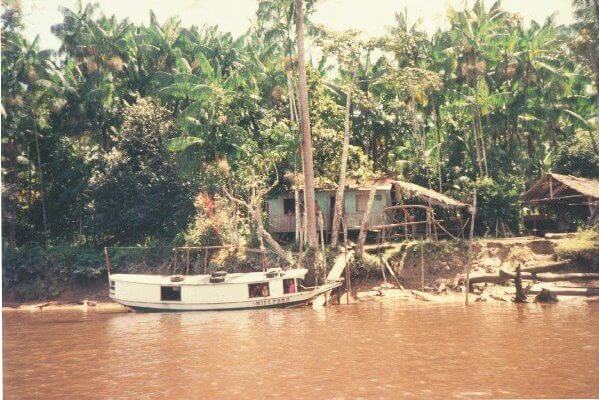 Over the next few years, Luke’s parents and all his siblings with spouses and children—the entire Huber family, moved to Santarém to work with PAZ. Additional missionaries also caught the vision and came from the United States. Luke began to build a fleet of diesel-powered riverboats to carry evangelists, church planters and health workers into the surrounding river communities. In some towns and villages the Gospel was met by opposition— sometimes even persecution— from spiritualists and works-based religions.
Over the next few years, Luke’s parents and all his siblings with spouses and children—the entire Huber family, moved to Santarém to work with PAZ. Additional missionaries also caught the vision and came from the United States. Luke began to build a fleet of diesel-powered riverboats to carry evangelists, church planters and health workers into the surrounding river communities. In some towns and villages the Gospel was met by opposition— sometimes even persecution— from spiritualists and works-based religions.
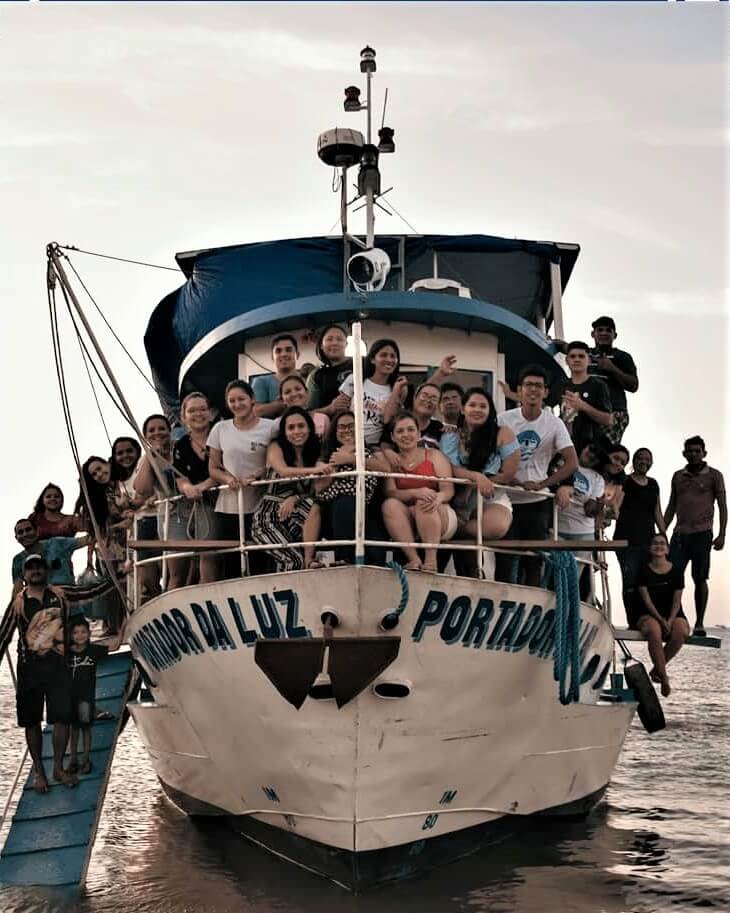 But the PAZ church, like the early-day church in Jerusalem, grew rapidly in the face of opposition. It is a testimony to God’s power and mercy that many of the Brazilians who once opposed the Gospel so fiercely, have since been won over and become important leaders and teachers in the PAZ churches.
But the PAZ church, like the early-day church in Jerusalem, grew rapidly in the face of opposition. It is a testimony to God’s power and mercy that many of the Brazilians who once opposed the Gospel so fiercely, have since been won over and become important leaders and teachers in the PAZ churches.
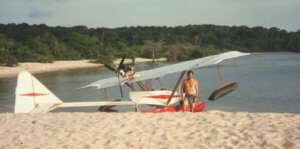
It is emblematic that, when Luke died — in a plane crash in 1994 — he was on the Amazon River, doing the work that he had been called to do and so loved!
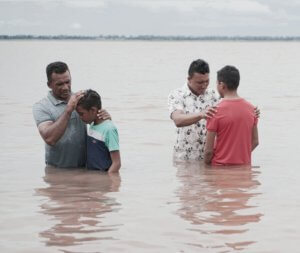
An army of born-again Brazilians rose to take important leadership positions in the church. It had been Luke’s vision and his dream from the beginning that PAZ would evolve from being an American-led mission to a vibrant, self-propelled church led by Brazilians. And that is precisely what has happened.
THE VISION COMES TO PASS
After Luke’s death, the Lord poured out an extra measure of grace on the mission and the new churches by raising up new leaders, bringing thousands of new believers in, and filling everyone with a new sense of urgency and devotion. These new indigenous leaders took hold of the vision that was once Luke’s—they continued evangelizing, planting churches and establishing new bases across the Amazon Basin.
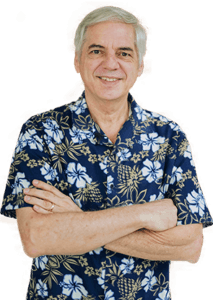
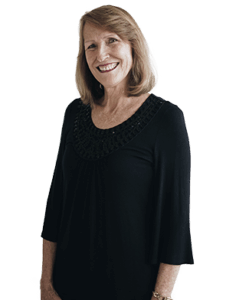 The Huber family is still active in PAZ. Today, it is led by Jeff and Becky Hrubik (Luke’s sister). They live at the mission home base in Santarém, and oversee a self supported staff of missionaries and the mission activities at large.
The Huber family is still active in PAZ. Today, it is led by Jeff and Becky Hrubik (Luke’s sister). They live at the mission home base in Santarém, and oversee a self supported staff of missionaries and the mission activities at large.
NEXT STEP AT SANTARÉM – PAZ HEADQUARTERS
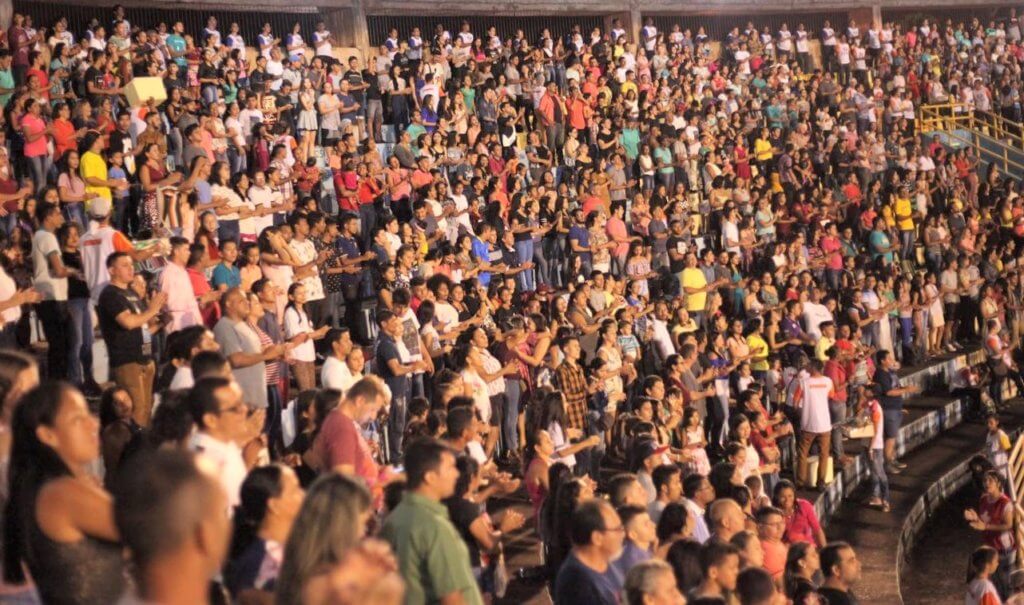 The church in the city is unified like never before. It keeps expanding and producing thousands of new believers and leaders. To accommodate all our members, we conduct over 50 services each Sunday, four at the Paz Central Church alone! We are in the process of building a 7,000 plus seat worship center that will accelerate the PAZ vision and stand as a testament to God’s great favor and desire to spread His fame to all nations. It will be a training center for thousands of missionaries that will be commissioned to the Amazon Basin, Brazil and yes — by God’s grace, to the ends of the world!
The church in the city is unified like never before. It keeps expanding and producing thousands of new believers and leaders. To accommodate all our members, we conduct over 50 services each Sunday, four at the Paz Central Church alone! We are in the process of building a 7,000 plus seat worship center that will accelerate the PAZ vision and stand as a testament to God’s great favor and desire to spread His fame to all nations. It will be a training center for thousands of missionaries that will be commissioned to the Amazon Basin, Brazil and yes — by God’s grace, to the ends of the world!
TRANSPORTATION

A large portion of the people of the Basin live along its rivers, lakes and streams. So the main transportation is by boat and sea planes. PAZ has a fleet of over 100 boats – from several small canoes and speedboats for national pastors and missionaries to larger live-in boats for support teams (medical, water filter, construction, disaster relief, etc.). Small aircraft and seaplanes allow our top leaders to oversee several locations in much less time.
STRATEGIC CENTERS
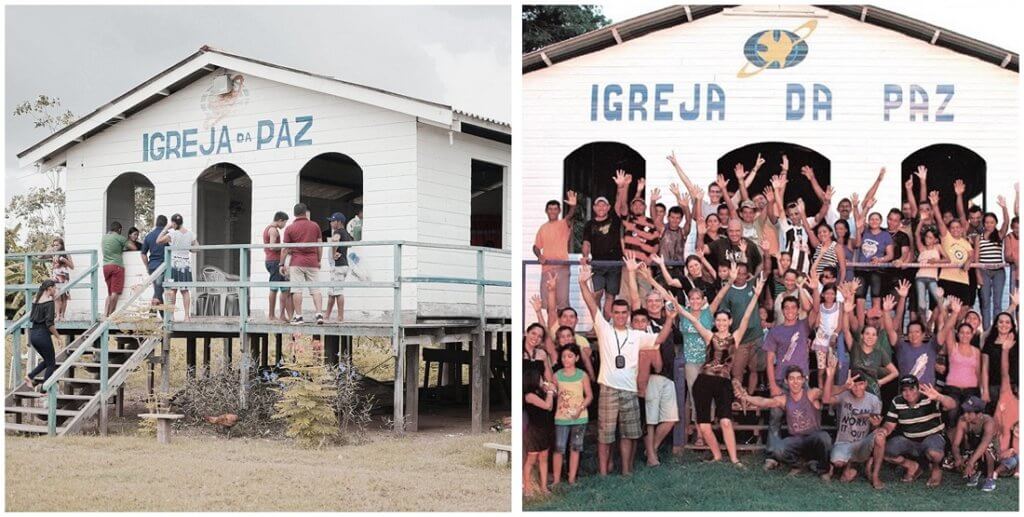
PAZ has established church centers in the nine Brazilian states in the Amazon Basin. From there church planting teams have been sent to almost all states capitals. As the team plants a mother church, initial resources are concentrated on developing strong, independent churches. As they grow, they in in turn send out their teams to new fields.
APOSTOLIC DISCIPLESHIP MODEL (ADM)
The essence of the vision: Before a church plant takes place, a cell group (small group or home church) is started and people are won for Christ and discipleship. This cell group is led by a fully committed disciple of Christ (typically a local worker from the larger mother church). 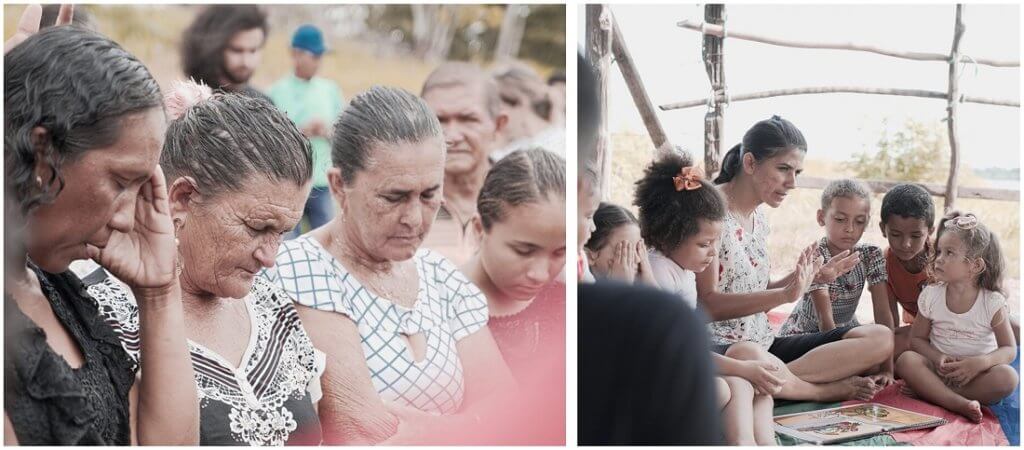
The purpose of our cell groups is to grow and multiply. This happens while raising up the next new leaders in the cell group. As they multiply, the local church is born and eventually a building is needed. We are more successful when planting a mother church by sending a team of Brazilian pastors and leaders who have already worked together fruitfully with the ADM model, instead of only one experienced couple.
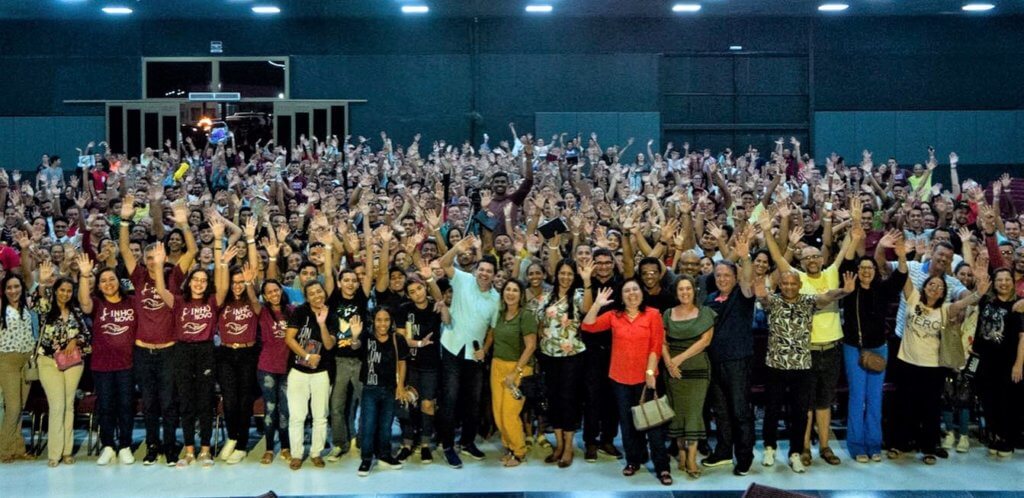 The base plant in Fortaleza was a team of 40 families lead by missionary/pastor Abe Huber. In six years, the church grew to over 4,000 people and they planted 50 new churches!
The base plant in Fortaleza was a team of 40 families lead by missionary/pastor Abe Huber. In six years, the church grew to over 4,000 people and they planted 50 new churches!
CHURCH-PLANTING MINISTRIES
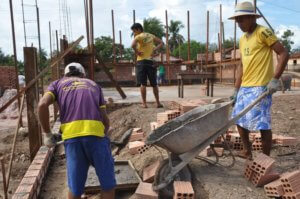
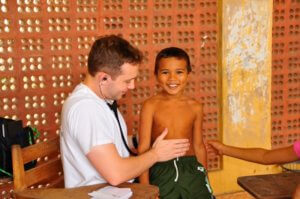 We develop key ministries which aid in church-planting, such as medical, water filter, education, construction, work programs, aviation and more. For example, a medical team will arrive in a target community via boat and host a health clinic while the water filter team installs filters.
We develop key ministries which aid in church-planting, such as medical, water filter, education, construction, work programs, aviation and more. For example, a medical team will arrive in a target community via boat and host a health clinic while the water filter team installs filters.
Each night the team, in collaboration with the river missionary, holds services, preaching the Gospel and winning converts. At the end of the trip, cell groups are established and a new local church is born, putting ADM into practice right away!
THE FIELD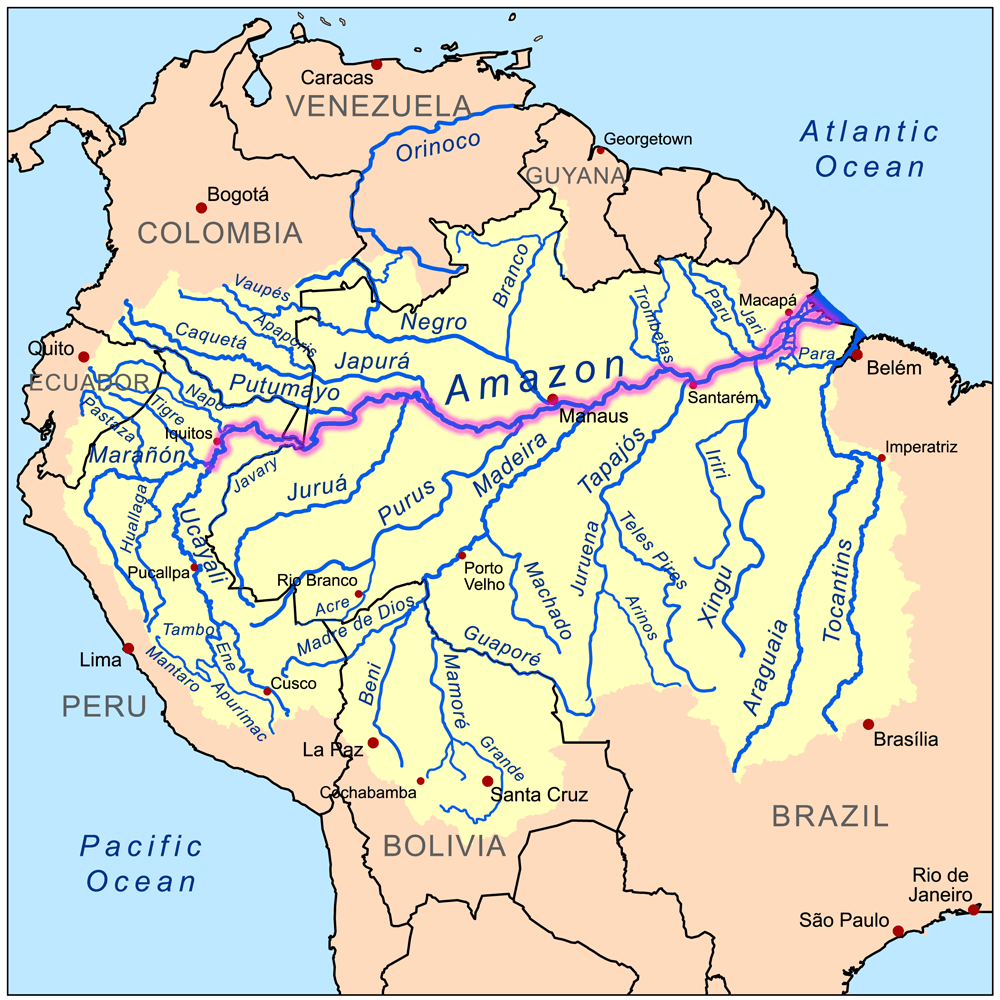
The principle mission field of PAZ is the Amazon Basin, containing nearly 3 million square miles of land and water and makes up 36% of all of South America. It is nearly the size of the Continental U.S. and most of it is located in Brazil, as well as in the neighboring countries of Peru, Columbia, Venezuela, Guyana, Suriname and French Guiana. An estimated 10 million people live in the Basin. Largely undeveloped and unreached, it lacks a paved highway or railway networks. The majority of the transportation is done via boat on the immense river system.
The Amazon River is the widest and second longest— 6,400 km—river on earth. It carries almost 20% of the world’s total freshwater discharging into the oceans. In fact, it drains more water than the world’s next nine largest rivers combined,. The land mass from which the water is draining into the river, the Amazon Basin, is the largest basin of any one river in the world.
THE PEOPLE The greatest asset of the Amazon Basin is not the fresh water, oxygen, wildlife or rainforest – it’s the people. They are very responsive to the Gospel. Most of those who live along the rivers in the Basin are simple people who work as fishermen, farmers and ranchers. There are 350 ethnic groups among them, 60 largely isolated. To visit them is to step into a different world where life is much more raw and a need unmet is life-threatening. These people are so precious to the Lord and we have the great privilege and challenge of sharing God’s love with them where they live. @PAZ
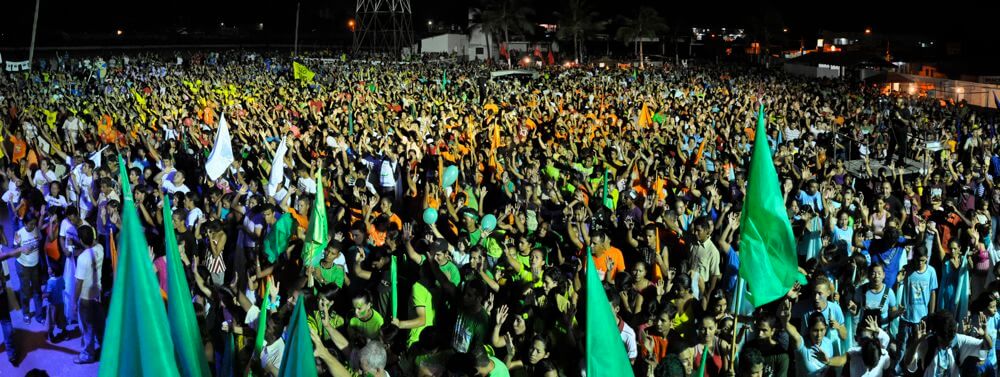 Then Jesus came to them and said, “All authority in heaven and on earth has been given to me. Therefore go and make disciples of all nations, baptizing them in the name of the Father and of the Son and of the Holy Spirit, and teaching them to obey everything I have commanded you. And surely I am with you always, to the very end of the age.” Mt. 28:18-20
Then Jesus came to them and said, “All authority in heaven and on earth has been given to me. Therefore go and make disciples of all nations, baptizing them in the name of the Father and of the Son and of the Holy Spirit, and teaching them to obey everything I have commanded you. And surely I am with you always, to the very end of the age.” Mt. 28:18-20
FROM R.K.’S CORNER
 We all stand on the shoulders of men and women in our family who went before us. Their love, hard work, and sacrificial efforts helped shape us. Today, when the attack on the nuclear family is relentless, the fracturing of family relationships disastrous, it is a tremendous blessing to present you with an intact American family who through a generational legacy of faith in action have embraced the Great Commission to reach the world for Christ!
We all stand on the shoulders of men and women in our family who went before us. Their love, hard work, and sacrificial efforts helped shape us. Today, when the attack on the nuclear family is relentless, the fracturing of family relationships disastrous, it is a tremendous blessing to present you with an intact American family who through a generational legacy of faith in action have embraced the Great Commission to reach the world for Christ!
Jeff and Becky Hrubik visited us in our home in the early 2000s. They told us about their family’s mission work through the then Project Amazon, now PAZ International. As a result, The Bridge helped finance some of their riverboat medical missions to the remote upriver villages in the Amazon basin. Later, in 2008, it was an honor to invite Melvin Huber, Becky’s father, and two of his children, to stay for a few days with us on their way back from the States to their home in Brazil. We were impacted by his and his family’s testimonies of passionate faith, courage and sacrifice through now four generations in bringing Him, who is the Light of the World, to those who have not heard! PAZ International is a mission worthy of your support!
Please mark your donation: PAZ International. Thank You!!
Update from South Sudan – Matthew Deng Dut and Elohim International Ministries
There has not been a comprehensive Bridge Report update published on Matthew and his ministry since the October 2019 issue, which you will find by clicking on SOUTH SUDAN under the COUNTRIES tab above. We start this report with great personal news: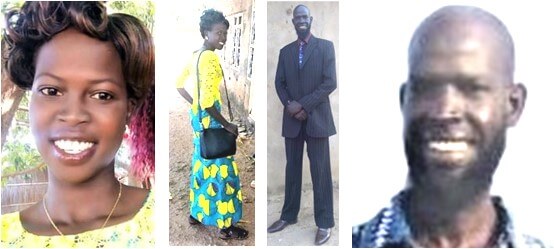
October 2019: CHURCH CONFERENCE FOR SOUTH SUDANESE CHURCHES IN NAKOUWA SUBURCH IN KAMPALA, UGANDA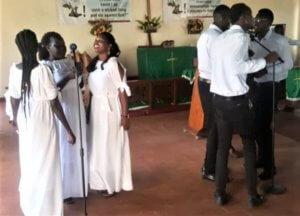
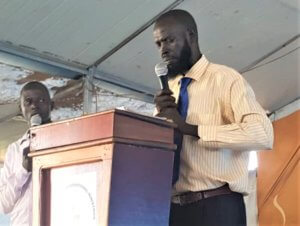
In 2013, two years after South Sudan was declared a separate new country, internal civil war broke out between the new President and the Vice President. Many who had returned from diaspora after living for decades in refugee camps in neighboring countries, left for fear of violence and fled back abroad. Matthew remained in the country and continued bringing the Gospel to his countrymen. There are now many small South Sudanese fellowships of believers in diaspora in Uganda. The Bridge helped sponsor Matthew and his team who visited Kampala and gathered these churches to a Praise and Peace Conference where thanksgiving and prayer were in focus. “We give glory to God for all He has done for us,” Matthew reports.
November 2019: A COUNTRY-WIDE CHURCH CONFERENCE TO DECLARE A NATIONAL DIALOGUE OF PEACE IN SOUTH SUDAN.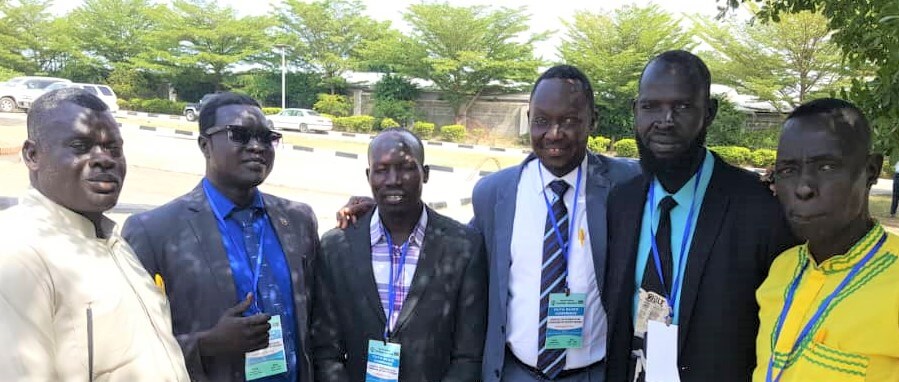
Matthew reports, “We had been prayer for this for a long time. All the churches of South Sudan came together to pray for repentance and reconciliation. It was unifying—peace will come!”
December 2019: GOSPEL OUTREACH TO THE PEOPLE OF ABYEI AND VISIT TO HIS HOME STATE OF TWIC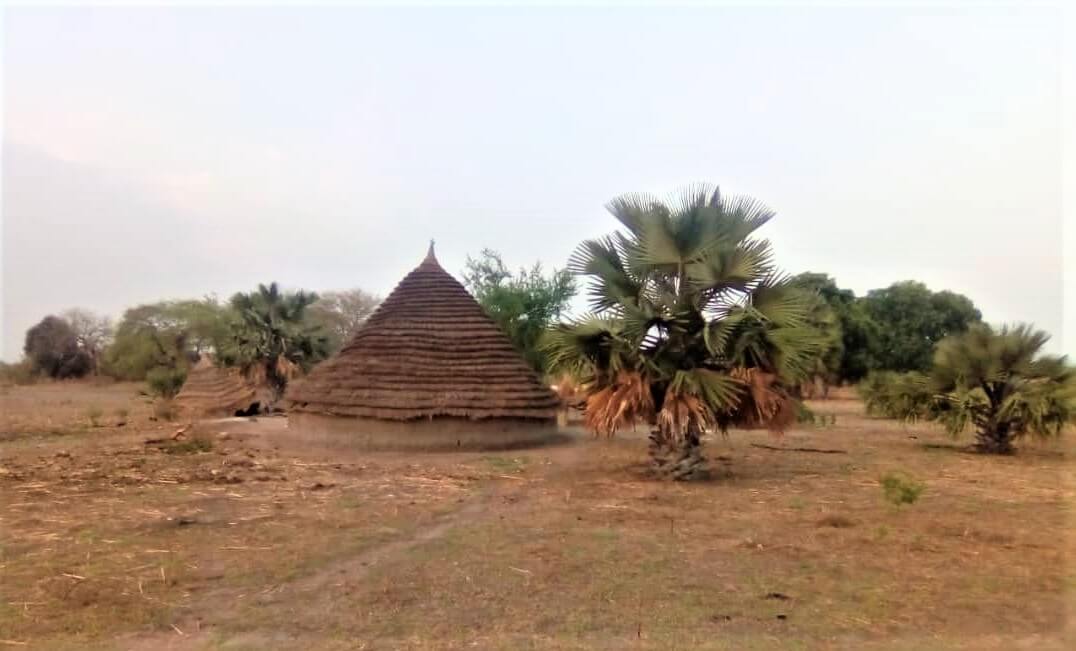
After Matthew had returned from living as refugee in Israel to resettle in his new homeland, he told me he was born in the very northern part of the country, the state of Twic, where he had family who owned land. It is located due south of Abyei, the most disputed and troubled region between Sudan proper and South Sudan. However, he was not ready to visit his family, as yet. His call was to settle in the capital of Juba and care for the believers who had returned with him from Israel.
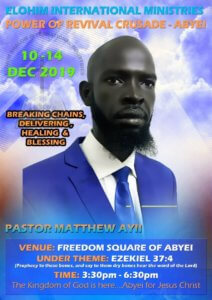 Seven years later, after he was established and had planted two churches in Juba and done a number of conferences and Gospel outreaches, the Lord laid upon his heart that the timing was right to bring the Gospel to his home region. In December, he conducted a Gospel outreach in Abyei.
Seven years later, after he was established and had planted two churches in Juba and done a number of conferences and Gospel outreaches, the Lord laid upon his heart that the timing was right to bring the Gospel to his home region. In December, he conducted a Gospel outreach in Abyei. 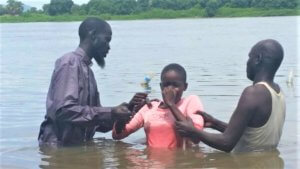 After that, he traveled to the rural village where he was born and grew up. He had not been back for 36 years, since he at eight years old was abducted by Sudanese enemy soldiers and brought to Khartoum!
After that, he traveled to the rural village where he was born and grew up. He had not been back for 36 years, since he at eight years old was abducted by Sudanese enemy soldiers and brought to Khartoum!
The reunion was cause for a great, joyous celebration! His father died when Matthew was young, but Matthew reconnected with his mother and two sisters. His uncle, his father’s brother, now more than 100 years old, expressed that he had been determined not to die before he would see his nephew, again. Matthew had told me his close family counts about 3,000 people and his Dinka family tribe in the region close to 30,000!
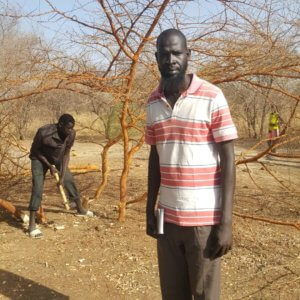 The Dinka tribe is traditionally a very tall nomadic people who support themselves largely from herding cattle. They live today the same subsistent lifestyle as they have for hundreds of years. I realized that for Matthew, who had for decades lived in large metropolitan cities abroad, visiting his family’s rural hometown was like stepping back in time several centuries to a simple lifestyle with no electricity, no roads, no infrastructure, no technology! “I have come home!” he expressed. His uncle took Matthew to the family property, a vast land area of rich, raw fertile soil with plenty of water available—an agricultural paradise. “All of this is yours, Matthew, I give it to you to manage this and lead our people.” And then, his uncle, being the local tribe leader, passed on the leadership to Matthew and appointed him Chief over their land and people! Before Matthew left for Juba, he promised to return three months later as he had a clear vision how he could help his people prosper by utilizing the rich land to grow their own food. When he returned in March 2020, he helped clear and plant a couple of acres with various seeds.
The Dinka tribe is traditionally a very tall nomadic people who support themselves largely from herding cattle. They live today the same subsistent lifestyle as they have for hundreds of years. I realized that for Matthew, who had for decades lived in large metropolitan cities abroad, visiting his family’s rural hometown was like stepping back in time several centuries to a simple lifestyle with no electricity, no roads, no infrastructure, no technology! “I have come home!” he expressed. His uncle took Matthew to the family property, a vast land area of rich, raw fertile soil with plenty of water available—an agricultural paradise. “All of this is yours, Matthew, I give it to you to manage this and lead our people.” And then, his uncle, being the local tribe leader, passed on the leadership to Matthew and appointed him Chief over their land and people! Before Matthew left for Juba, he promised to return three months later as he had a clear vision how he could help his people prosper by utilizing the rich land to grow their own food. When he returned in March 2020, he helped clear and plant a couple of acres with various seeds.
February 2020: TRAVEL TO SEOUL, SOUTH KOREA AS ONE OF 16 SOUTH SUDANESE REPRESENTATIVES AT AN INTERNATIONAL PEACE SUMMIT
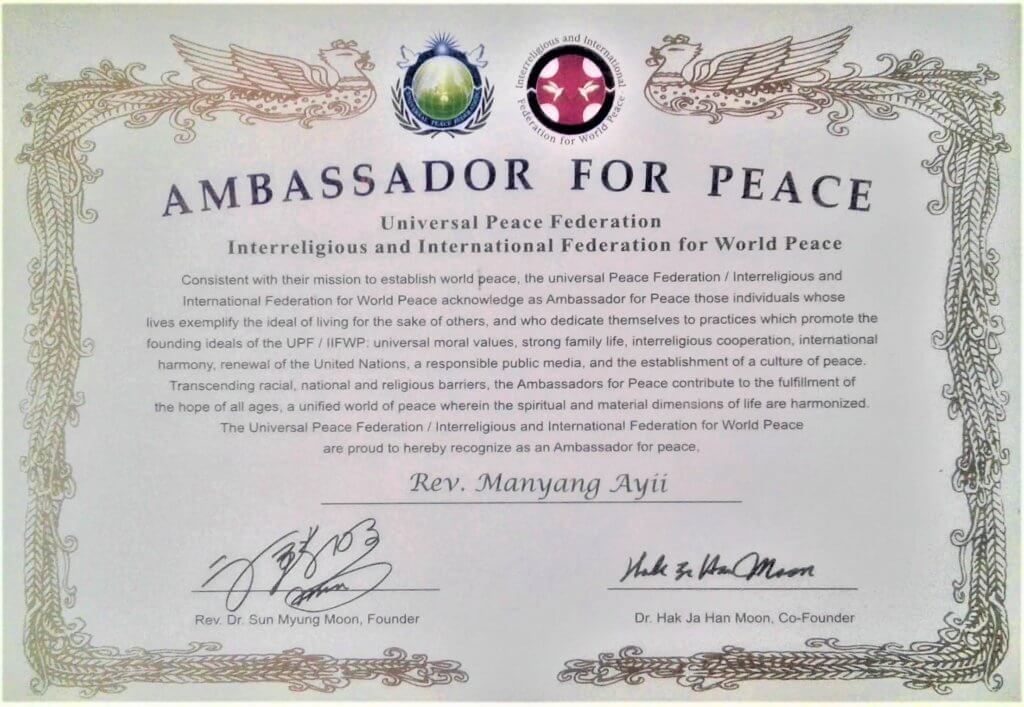 The new Vice President is a committed Christian, and had noticed Matthew’s ardent pursuit and leadership in bringing believers in the country together to intercede for peace and reconciliation. He invited Matthew to meet him in Khartoum, Sudan, during which he appointed him to be one among 16 delegated representing South Sudan at the Interreligious and International Federation of World Peace (Matthew’s official name is Manyang Ayii). Upon his return, Matthew was offered a leadership position in the government, but declined. “I am called to be a Pastor and Evangelist, not a government worker.”
The new Vice President is a committed Christian, and had noticed Matthew’s ardent pursuit and leadership in bringing believers in the country together to intercede for peace and reconciliation. He invited Matthew to meet him in Khartoum, Sudan, during which he appointed him to be one among 16 delegated representing South Sudan at the Interreligious and International Federation of World Peace (Matthew’s official name is Manyang Ayii). Upon his return, Matthew was offered a leadership position in the government, but declined. “I am called to be a Pastor and Evangelist, not a government worker.”
THEN—COVID-19 ARRIVED AND CURBED PUBLIC OUTREACHES AND ACTIVITIES Although the infection rate was extremely low (to date less than 11,000 infected and a total of 115 deaths among a population of close to 14 million) the government restricted most activities. The believers met in homes, and Matthew focused on strengthening the home base.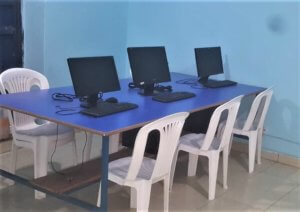
The Bridge helped finance a new Computer Training School by providing 2 desktops, 3 laptops, a printer, and a scanner, and we recently added 3 more laptops. 16 students have completed the three month course. 20 are presently attending classes, 3 groups per day for three days a week with two teachers. Today, a year later, the school is self financed.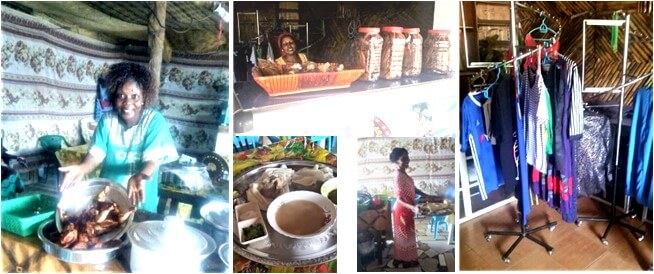
Every one of the women’s cottage industries in which we initially invested are all thriving and able to support them and their families: sale of women’s clothing, a shop selling homemade tea and snacks, a restaurant serving home made food and beverages.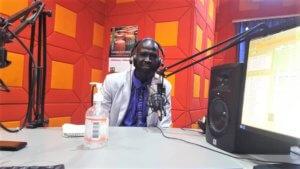
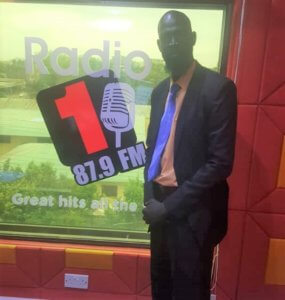
Matthew continues to do what he loves the most via different forums: preaching and teaching the Word of God. We help pay for his once a week Gospel hour on the largest FM radio station in Juba, which reaches most of the capitol’s half mill people.
SUMMARY REPORT FROM ELOHIM INTERNATIONAL MINISTRIES by Matthew
Since I arrived with my church members in 2012 from Tel Aviv, Israel in Juba, South Sudan, we have been working very hard to fulfill the vision and mission the Lord gave us when we were refugees in Israel: to preach the Gospel, that the South Sudanese people will come to know Jesus Christ as their Savior. We have experienced God’s blessings and His provision and watched how He has used us to bring wonders and miracles to the people who have come to faith.
We have now two churches in Juba with about 300 believers in each, and many have been trained in leadership. The believers meet in Bible study groups, groups for teenagers and young adults, and groups for young mothers. We have Sunday school for younger children, and leadership meetings for the training of pastors and leaders. Once a month, we gather the two churches for a conference where we teach on specific topics, or we gather for worship and thanksgiving, where there is food and fellowship.
Every year I bring our leadership team to other regions in the country where we conduct crusades in unevangelized areas. In 2019, we were in Wau, capital of Western Bahr el Gazal State and in the Abyei area, near my home town, where we have planted a church in each place. In 2020 because of Covid-19, we could not preach the Gospel publicly, but God was still in control! Now, South Sudan is free from Corona, and the country has opened up, so we will continue our outreaches! I am planning to devote my time between Juba and my home area in the North. We have ordained a new local pastor for the Juba churches, Robert Simon Tombe, as I will be focusing on my new marriage and church planting, preaching and teaching. Thank you, Bridge partners who have helped us with finances and prayers!
FROM R.K.’s CORNER
 You may have noticed that the May issue of The Bridge Report was not published, nor mailed to our contacts. The reason for skipping this report was that both Steve and I had contracted Covid-19. We felt that the best cause of action was to shut down the Stateside activities of The Bridge office while we quarantined in our home to give us time to heal, but also ensuring that we would not infect anyone else coming to the office or in contact with us. Fortunately, this did not affect any of the work or activities of our field partners overseas!
You may have noticed that the May issue of The Bridge Report was not published, nor mailed to our contacts. The reason for skipping this report was that both Steve and I had contracted Covid-19. We felt that the best cause of action was to shut down the Stateside activities of The Bridge office while we quarantined in our home to give us time to heal, but also ensuring that we would not infect anyone else coming to the office or in contact with us. Fortunately, this did not affect any of the work or activities of our field partners overseas!
We had decided not to be vaccinated, but rather let nature take its course by allowing our natural immune system to do the fighting. We both had a mild to moderate case; I chose to stay at home, while Steve, due to precautions regarding a lowered immune system caused by the anti-cancer chemo therapy he is given, was admitted to the hospital for a few days. Today, six weeks later, we are both healed and back to life before Covid, with no lingering side effects, thanks to God’s grace and the prayer and intercession by brothers and sisters across the globe! THANK YOU!!
This is therefore a bit longer publication where I present an update on Matthew Deng Dut’s life and ministry in South Sudan from the fall of 2019 until now. There is some exciting news, and much fruit for God’s Kingdom!

